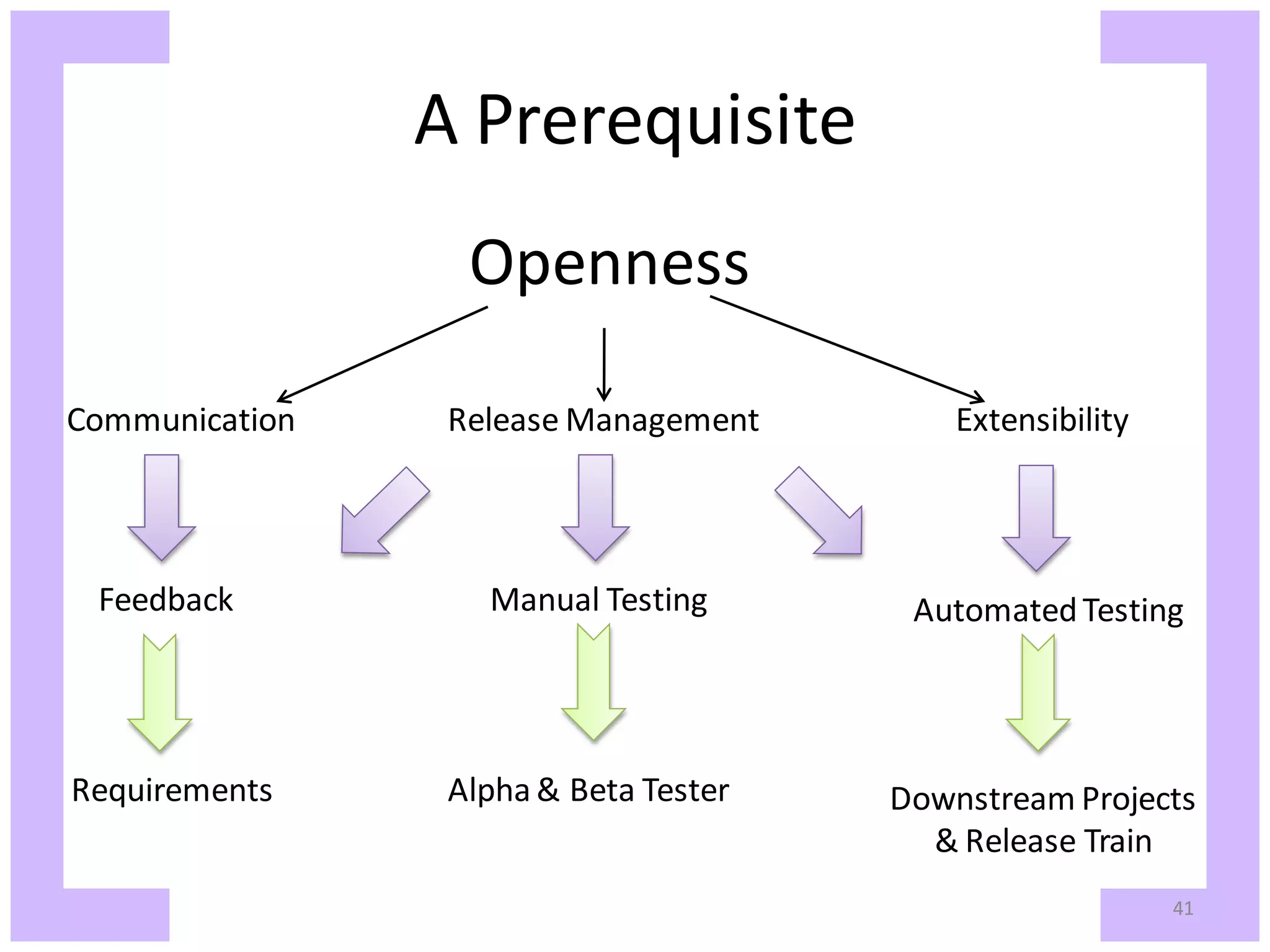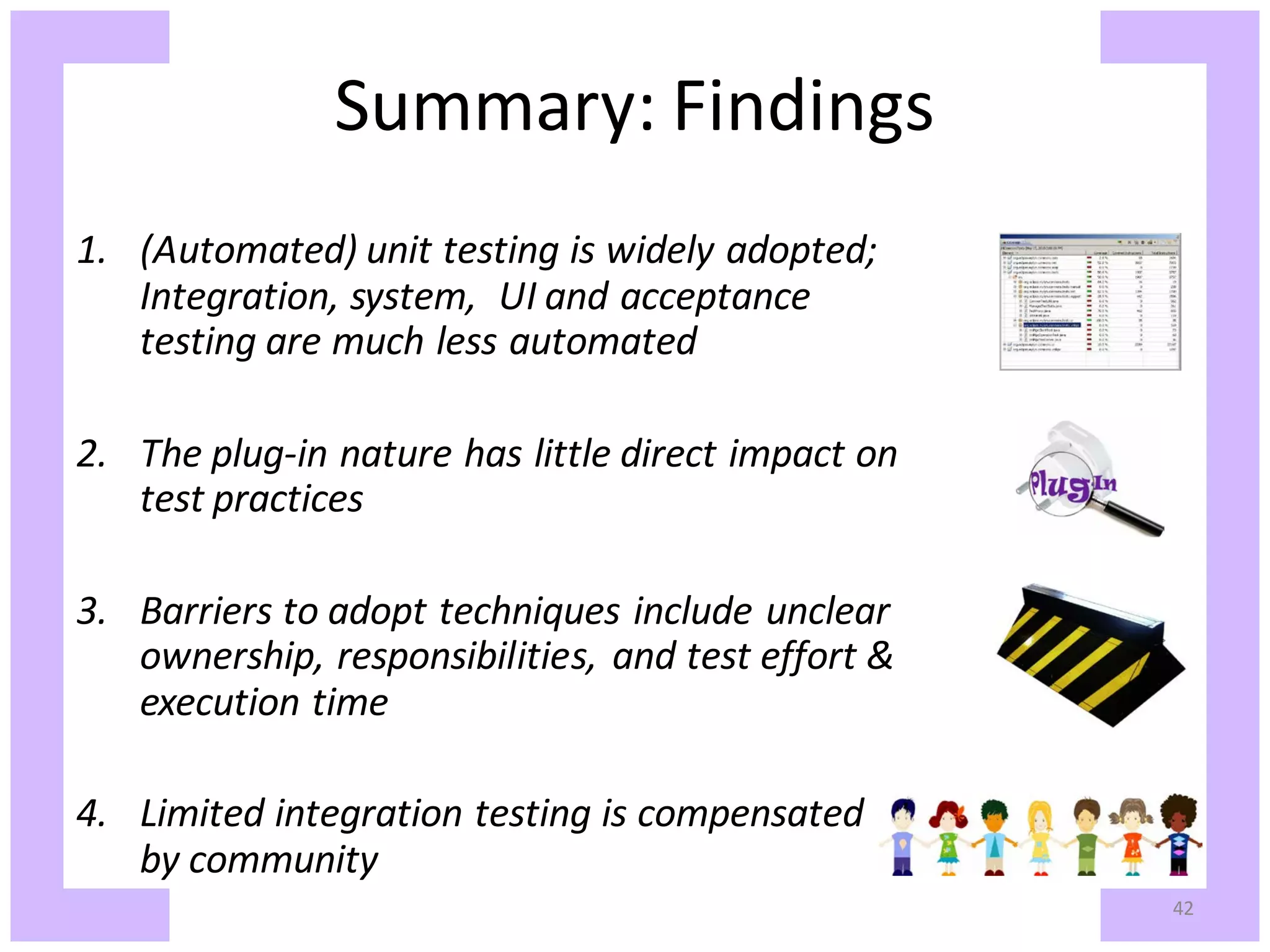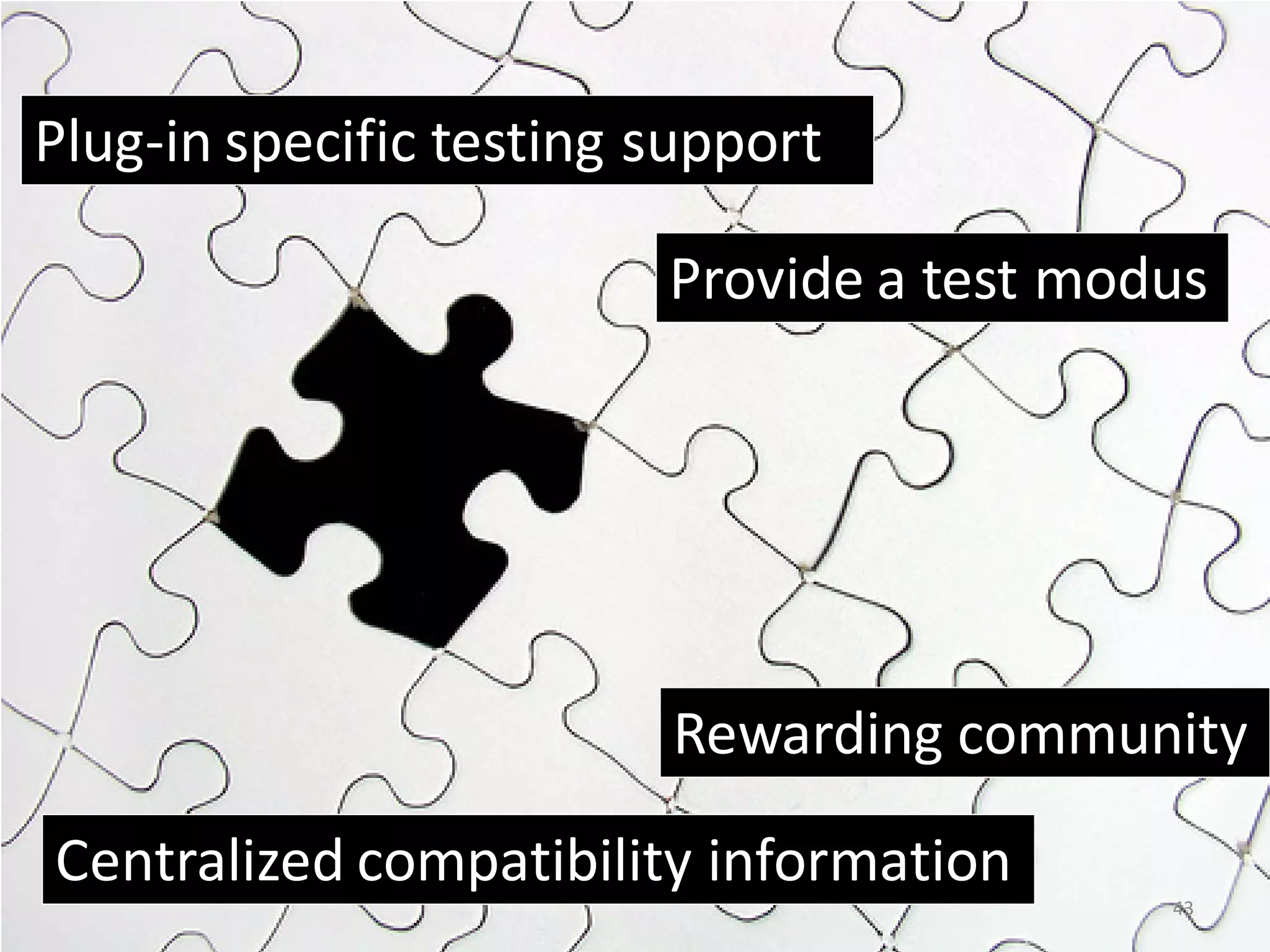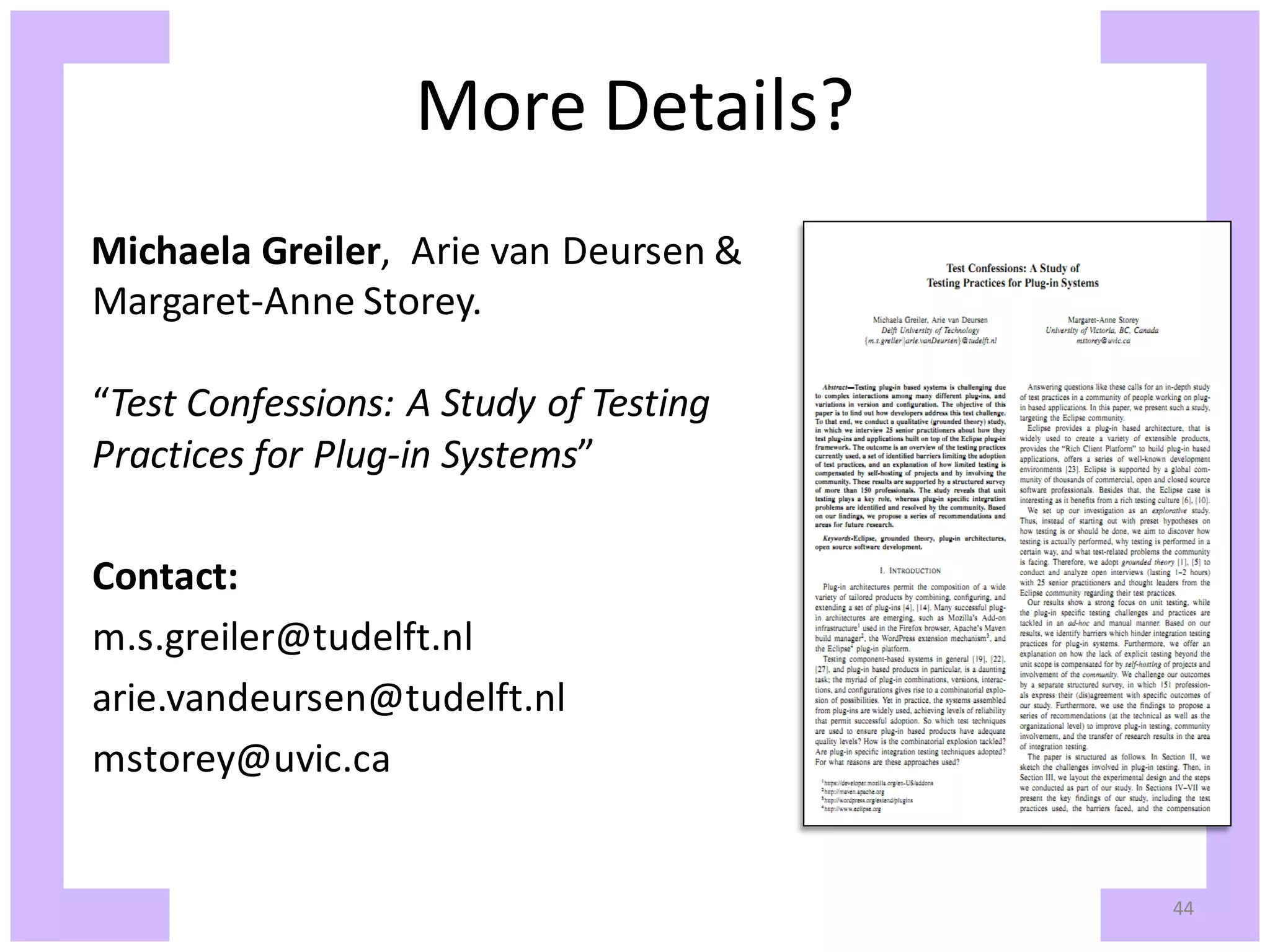1. The document summarizes a study on testing practices for plug-in systems. It examines how developers test plug-ins and the challenges of testing cross-plugin integration and different versions. 2. The study found that unit testing is widely used for plug-ins but other types of testing like integration and system testing are less common. Testing cross-plugin interactions and different versions is also limited. 3. Barriers to more rigorous plug-in testing include unclear responsibilities, lack of expertise, and long test times. Developers compensate by relying on community testing and involvement to identify issues.
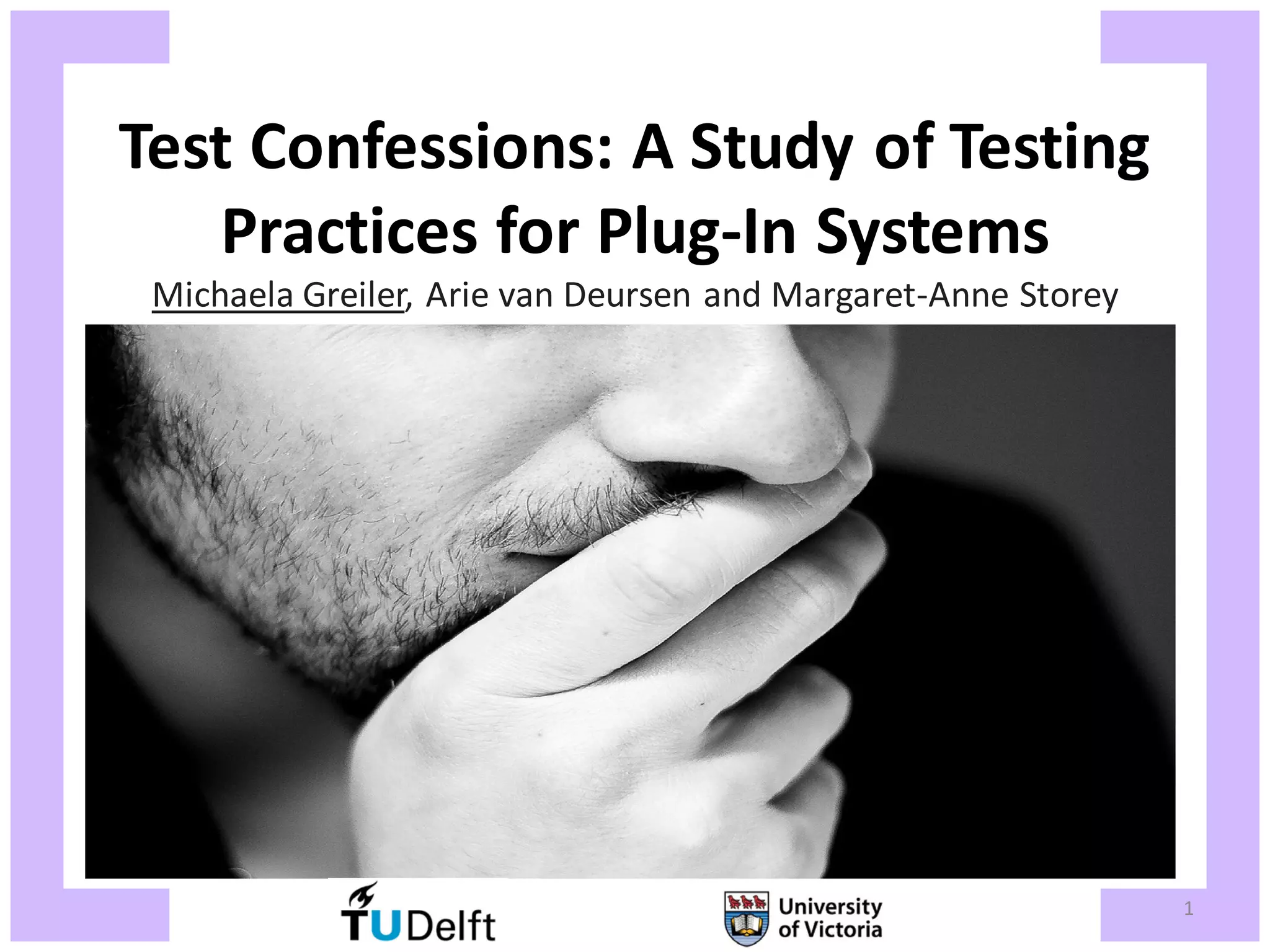
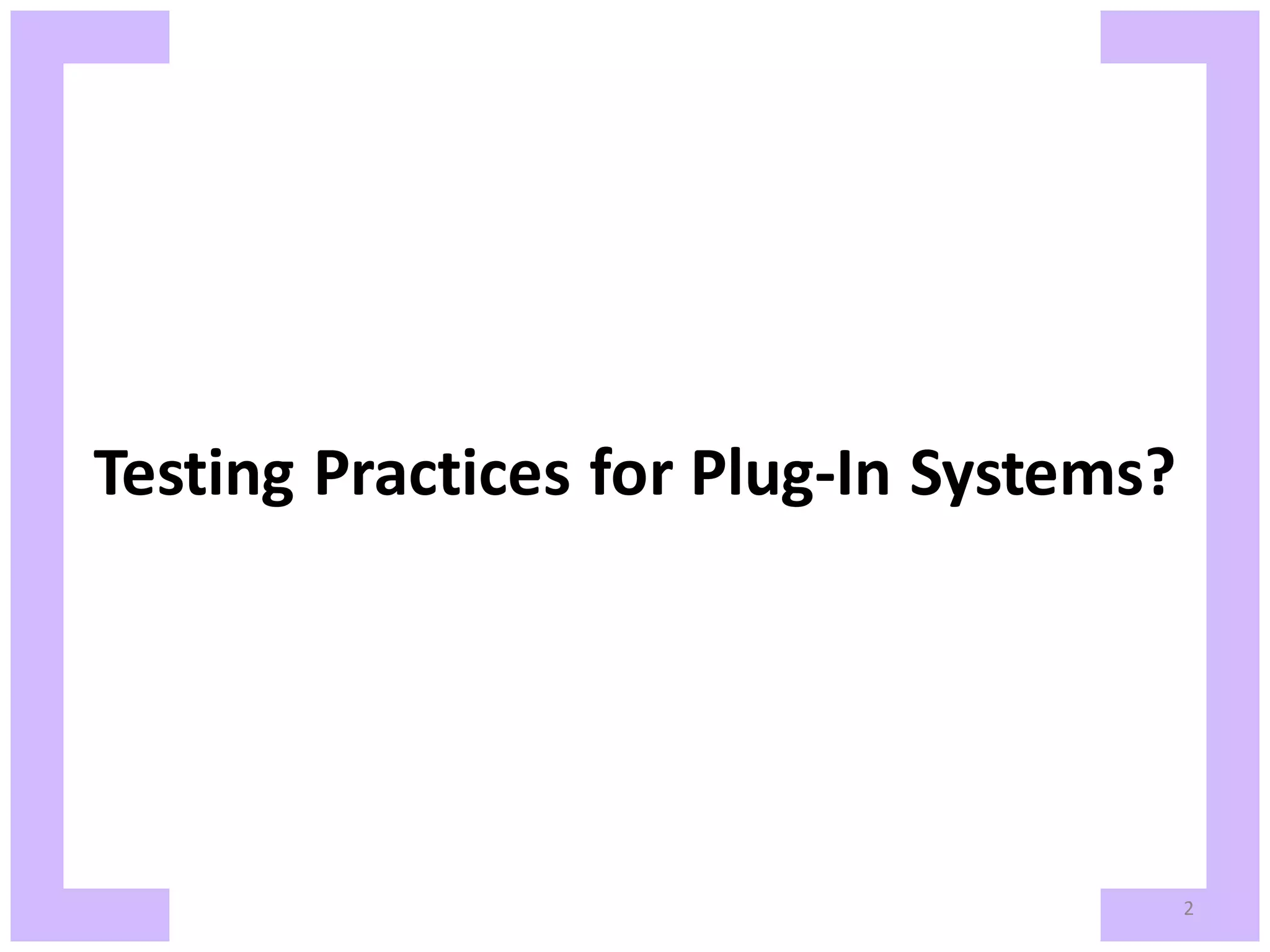
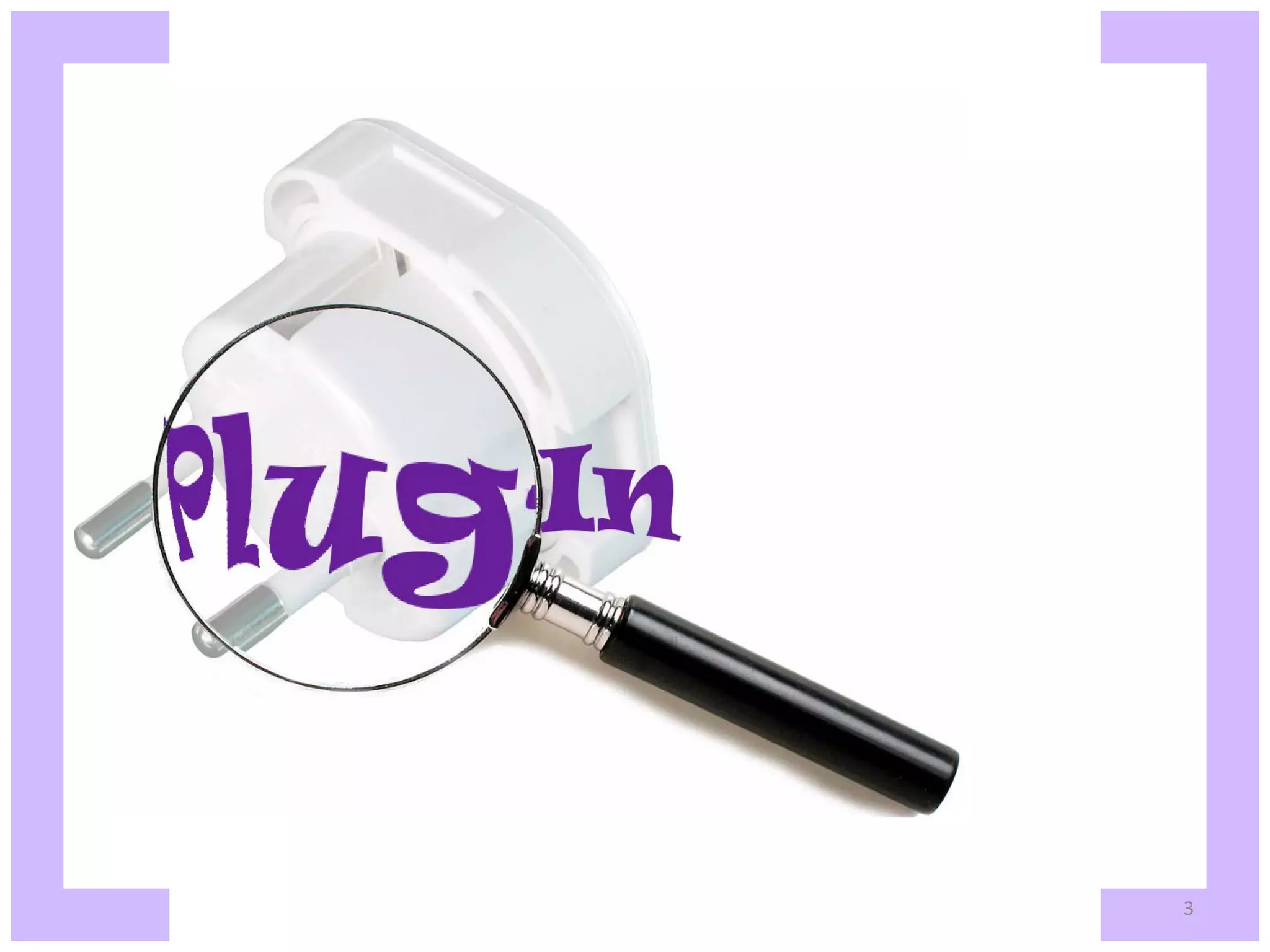
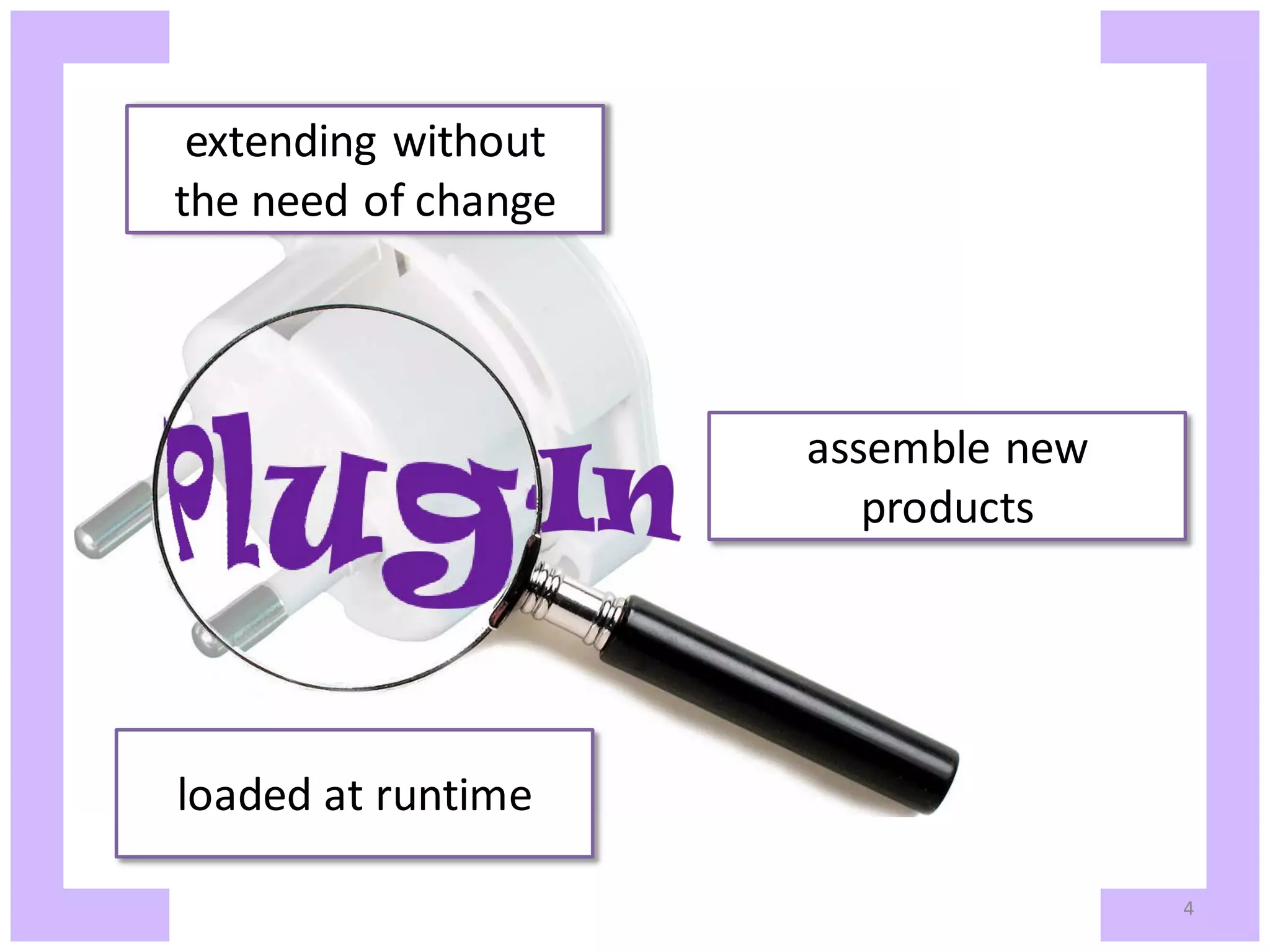

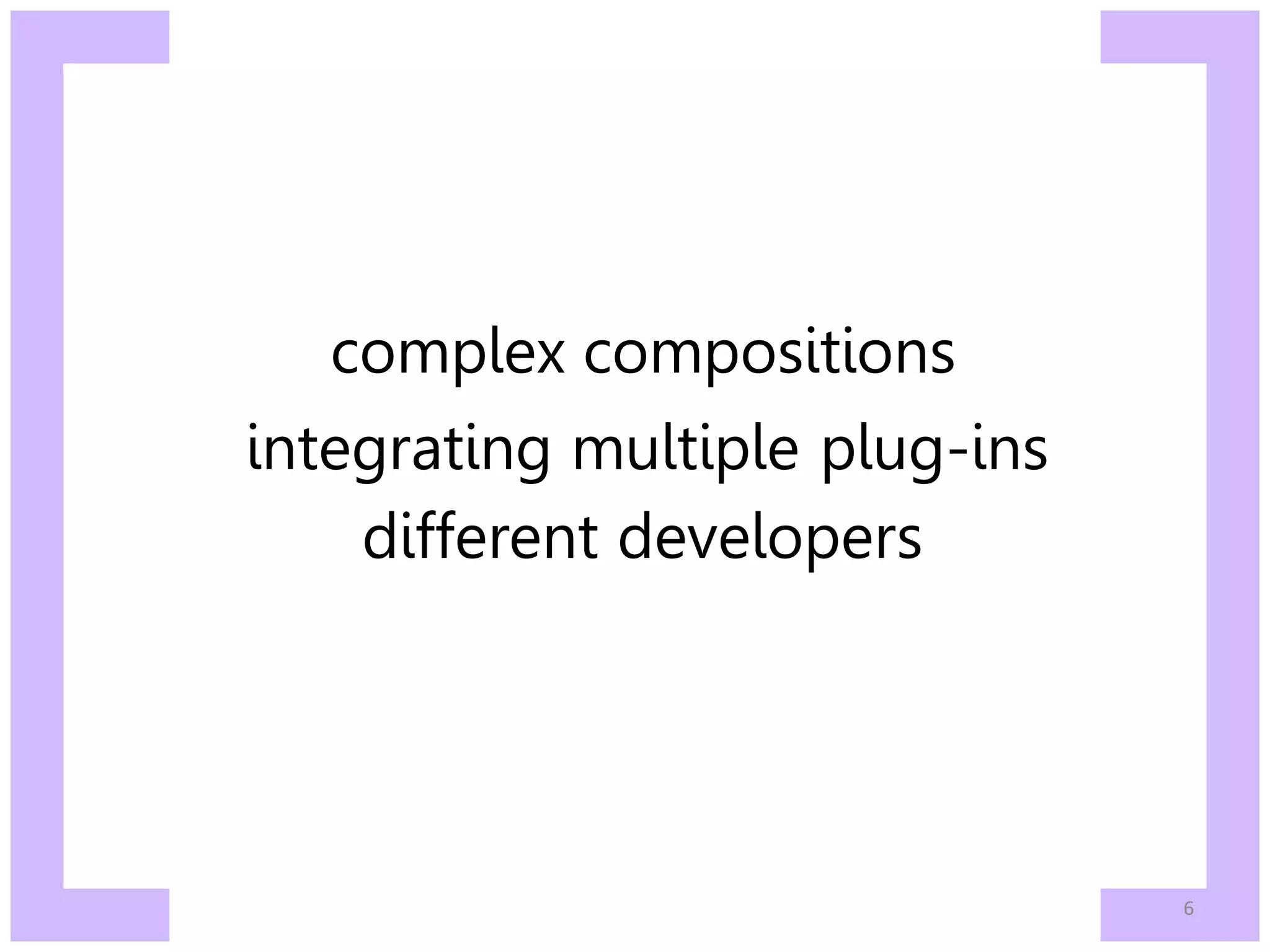
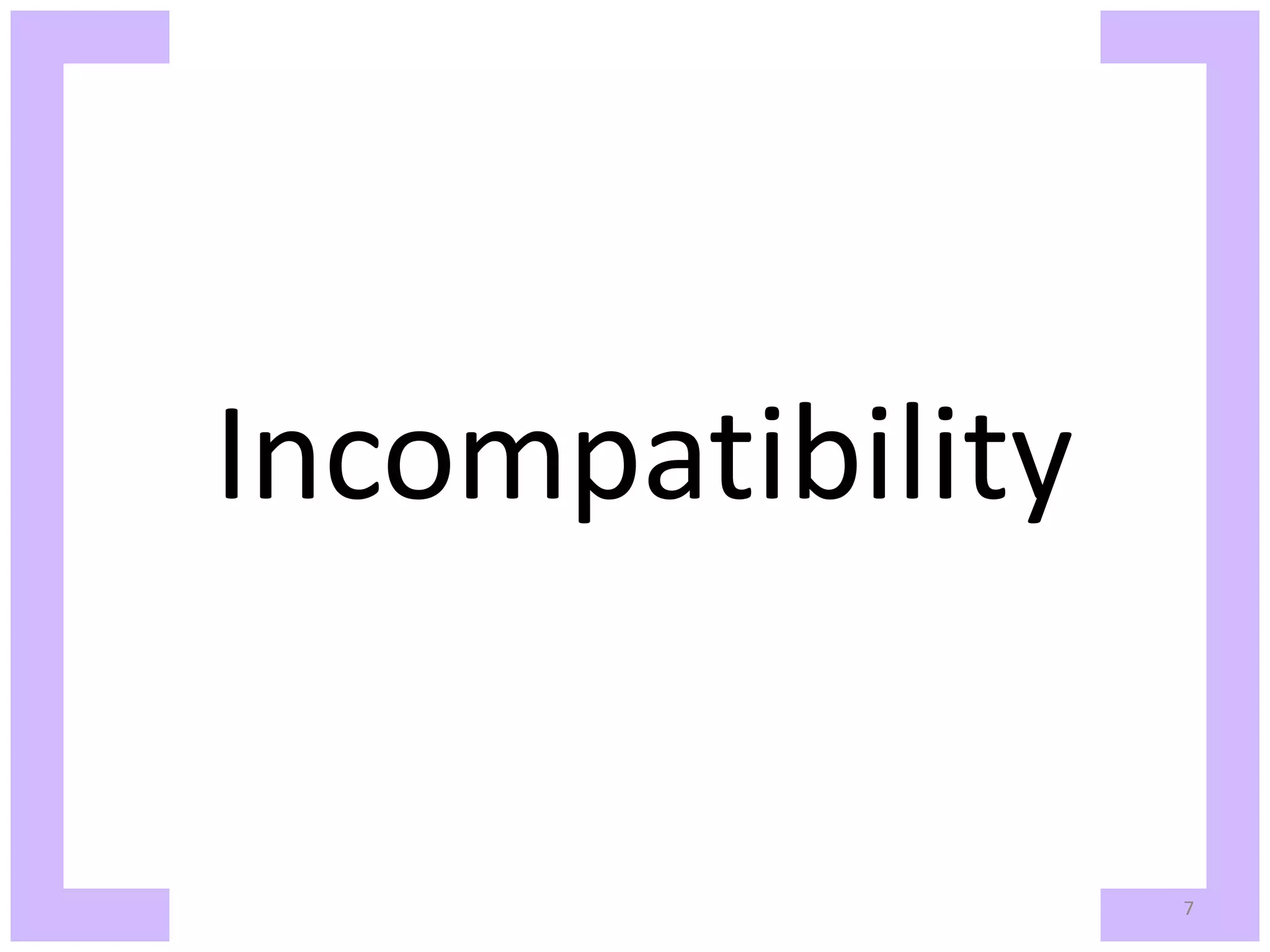
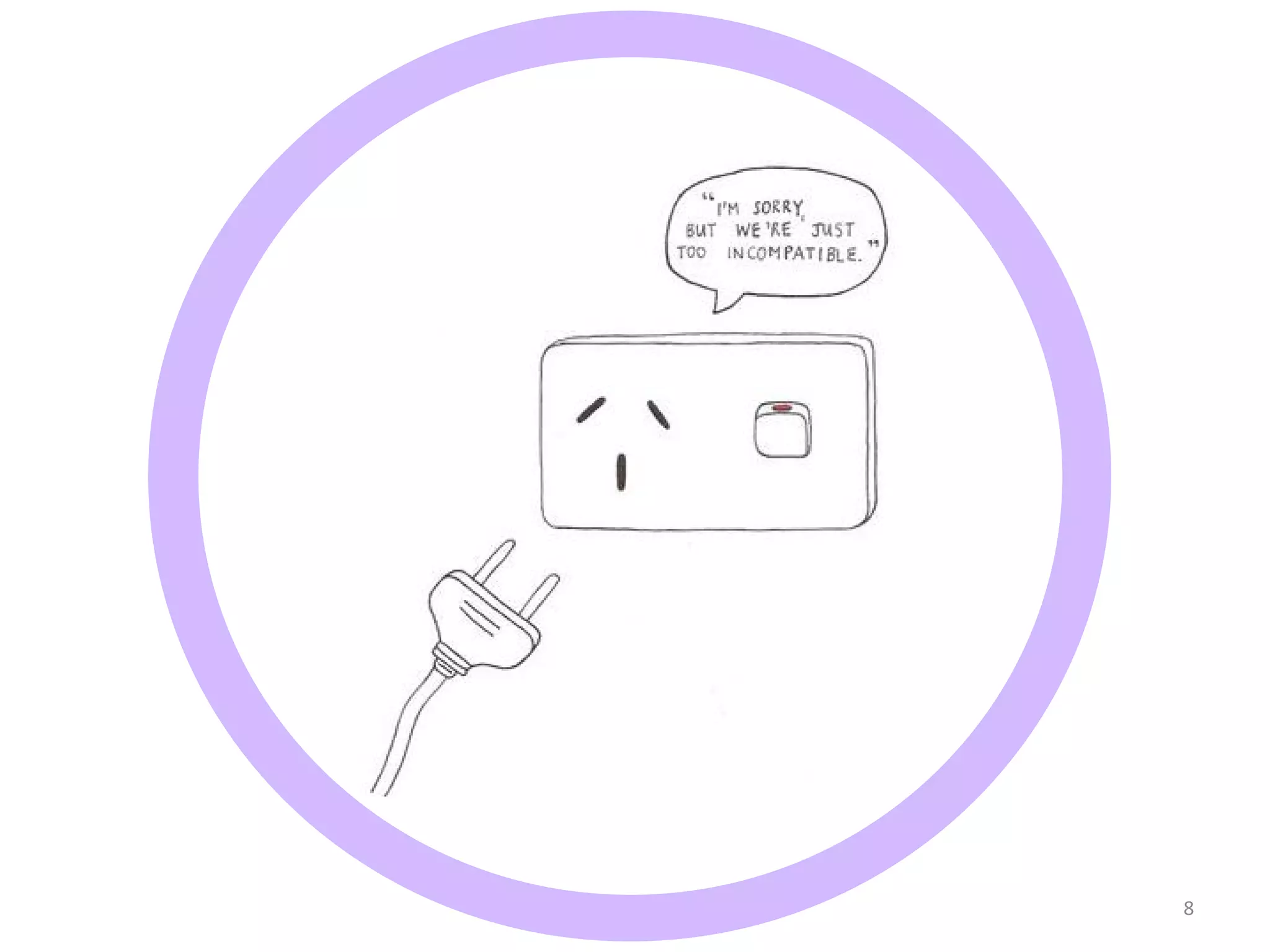
![“The number one reason people give us for not upgrading to the latest version of WordPress is fear that their plugins won’t be compatible.” [WordPress] 9](https://image.slidesharecdn.com/icse2012-testconfessions-astudyoftestingpracticesforplug-insystemspdfversion-120608020833-phpapp01/75/ICSE-2012-Test-Confessions-A-study-of-testing-practices-for-plug-in-systems-9-2048.jpg)
![“Thanks, but I think we have given up on Eclipse and Bugzilla integration.” [Eclipse – Bug ID: 268207] 10](https://image.slidesharecdn.com/icse2012-testconfessions-astudyoftestingpracticesforplug-insystemspdfversion-120608020833-phpapp01/75/ICSE-2012-Test-Confessions-A-study-of-testing-practices-for-plug-in-systems-10-2048.jpg)

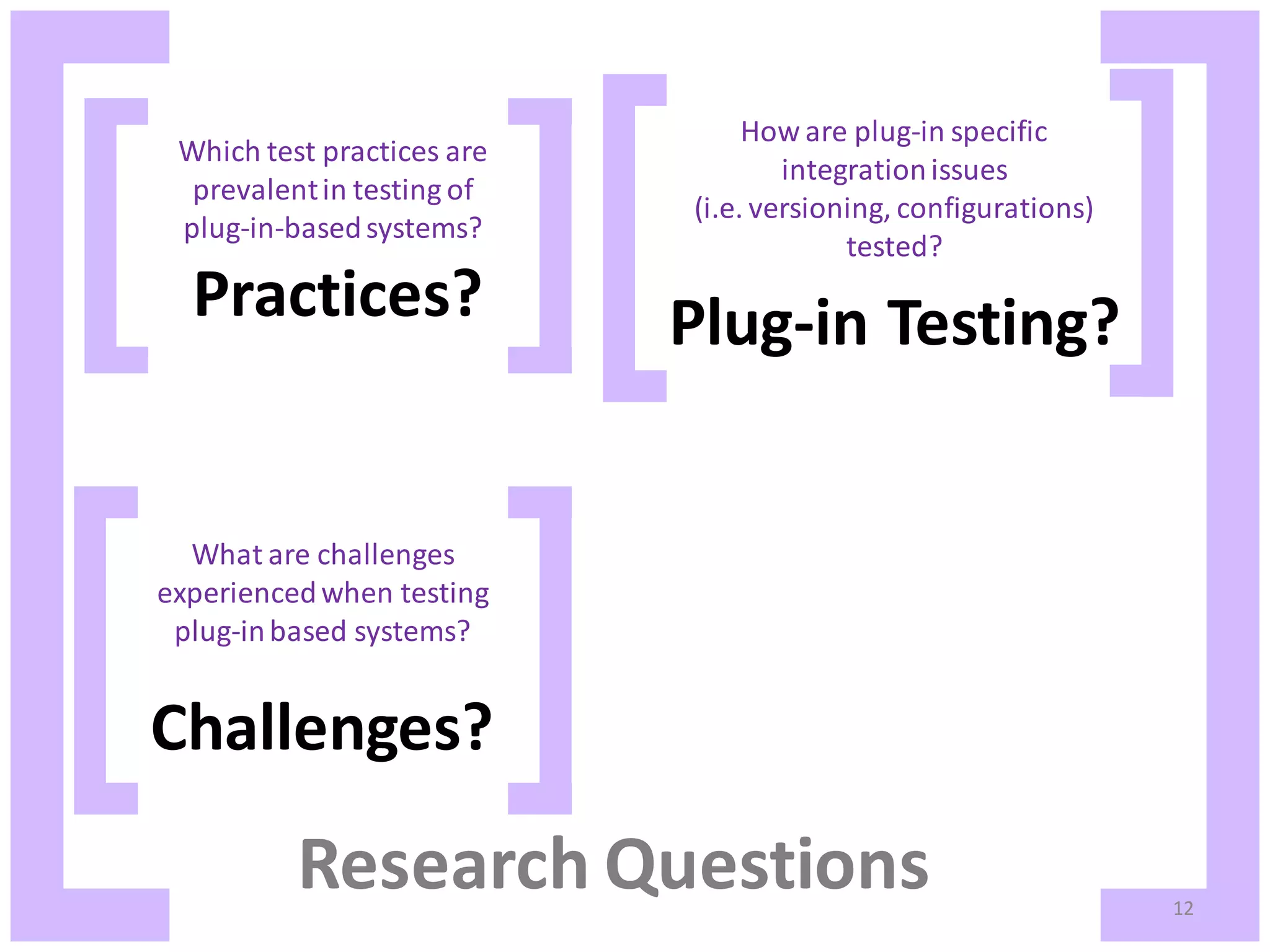


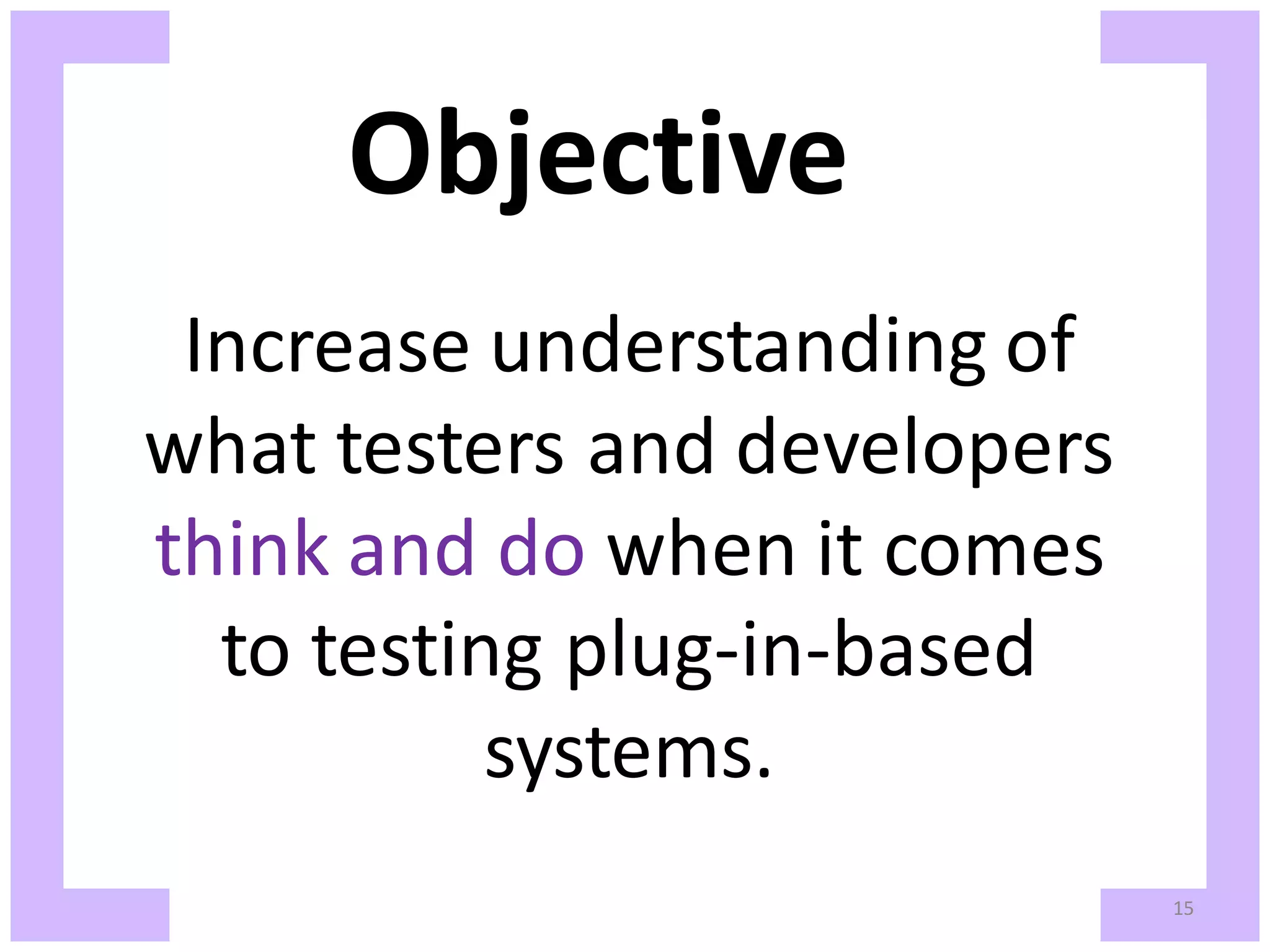
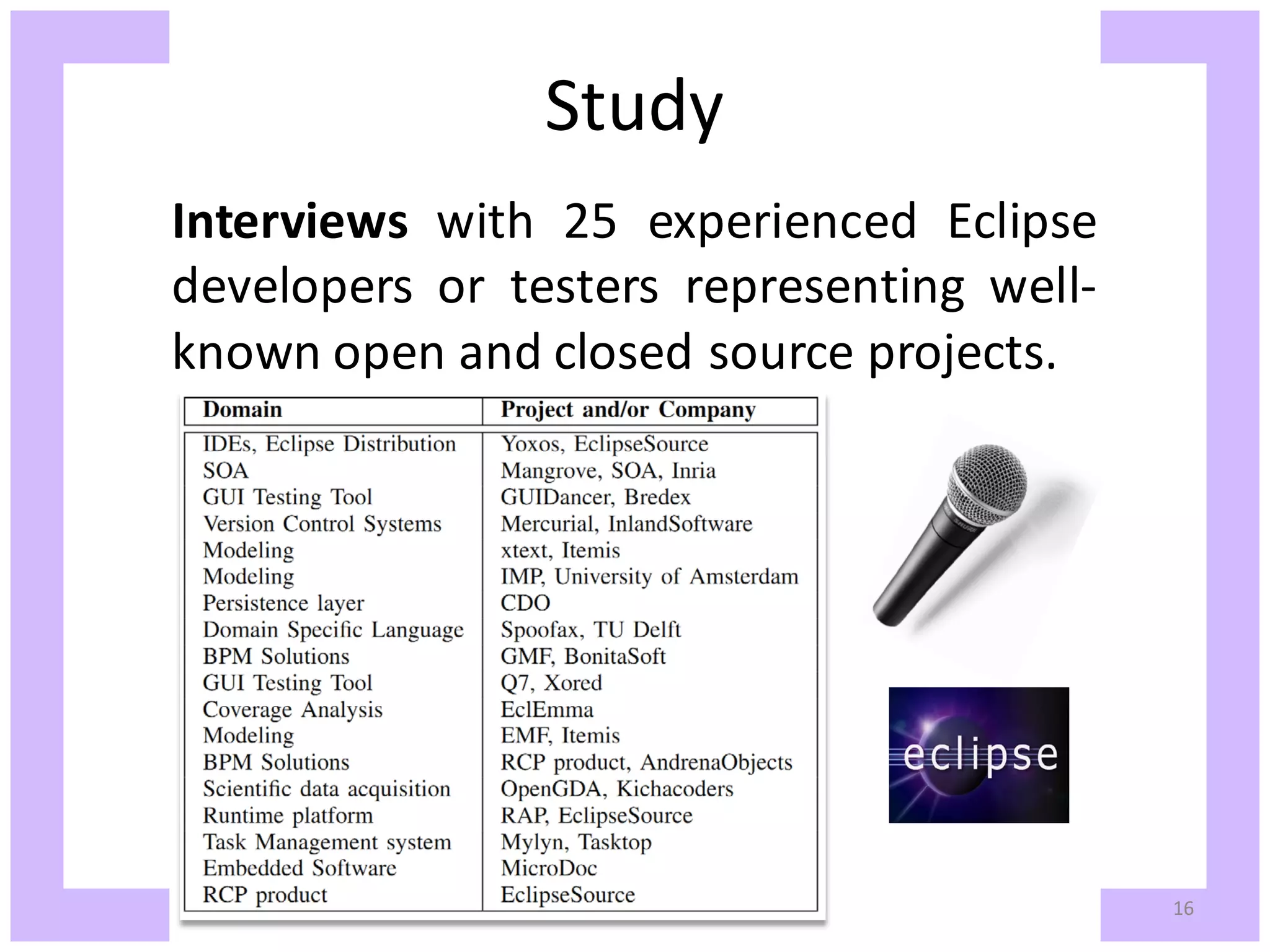
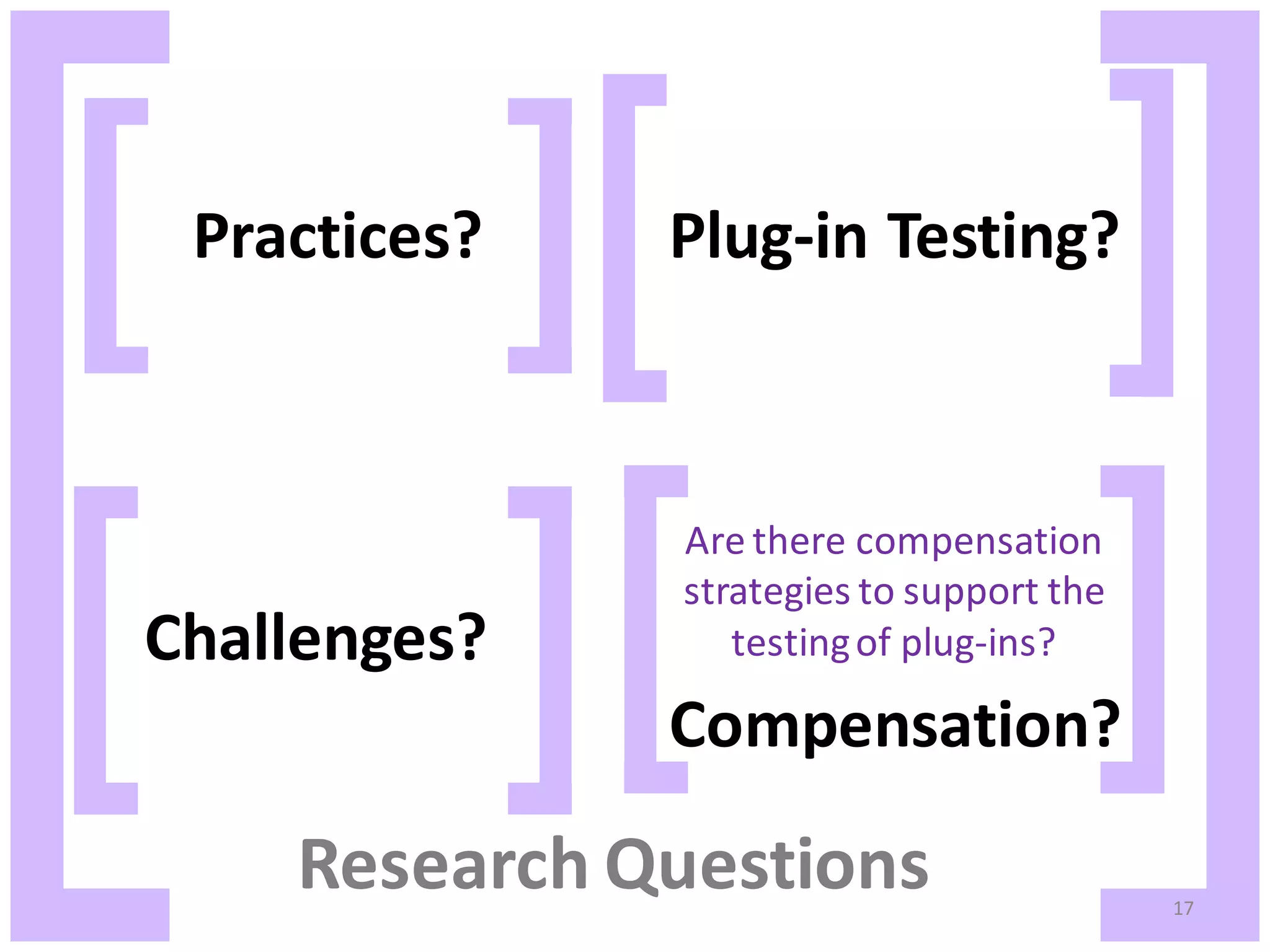
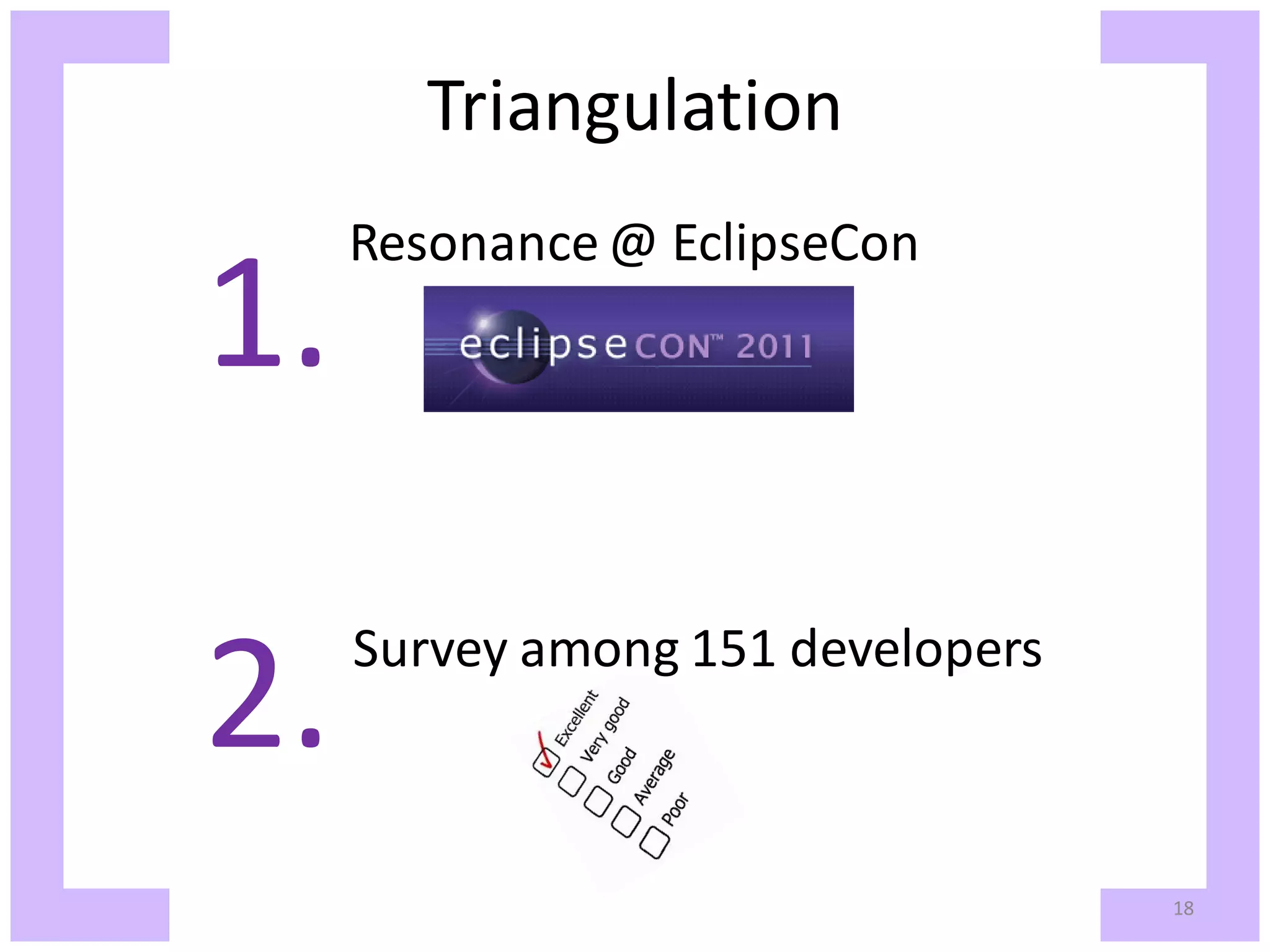
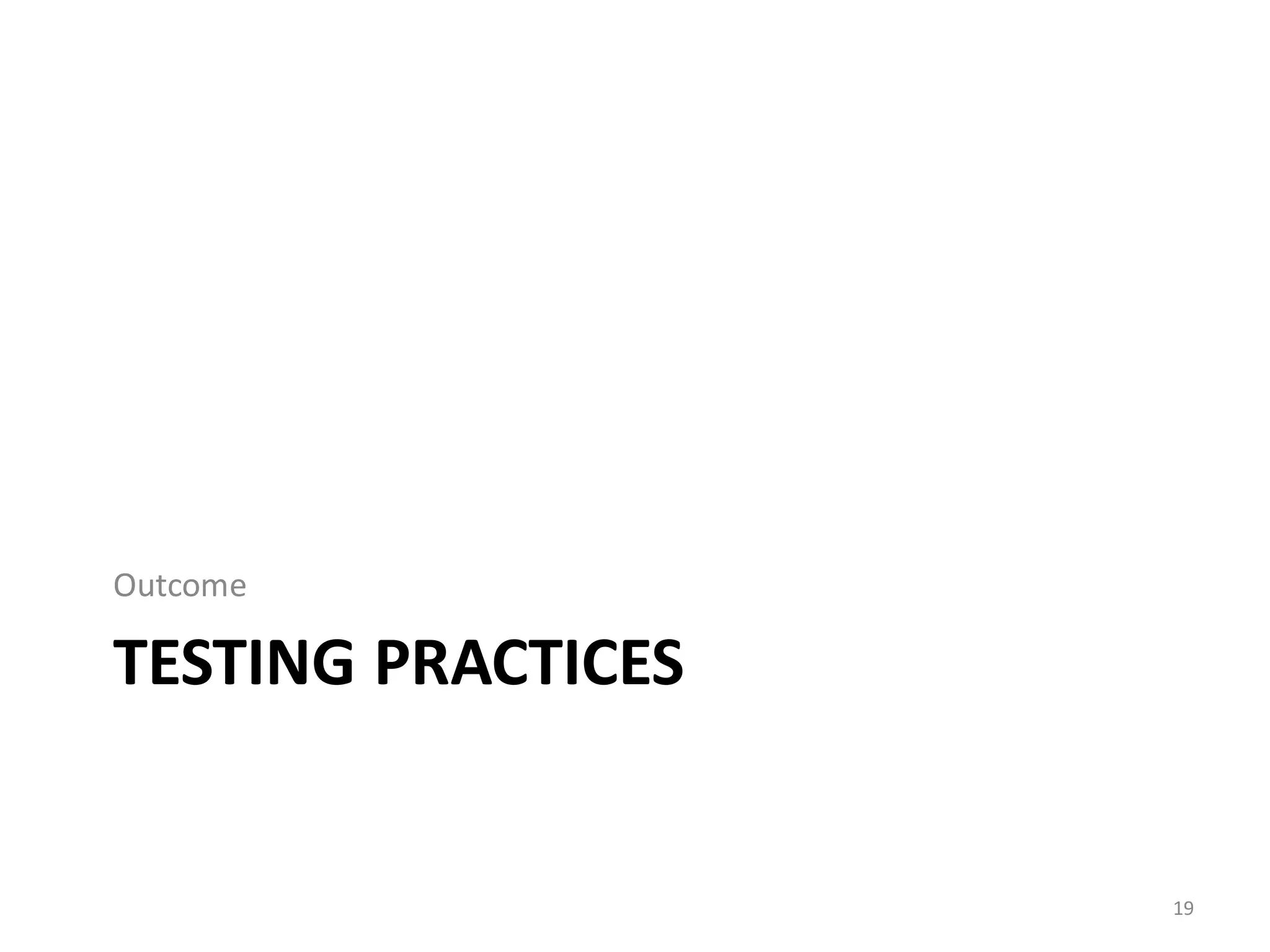
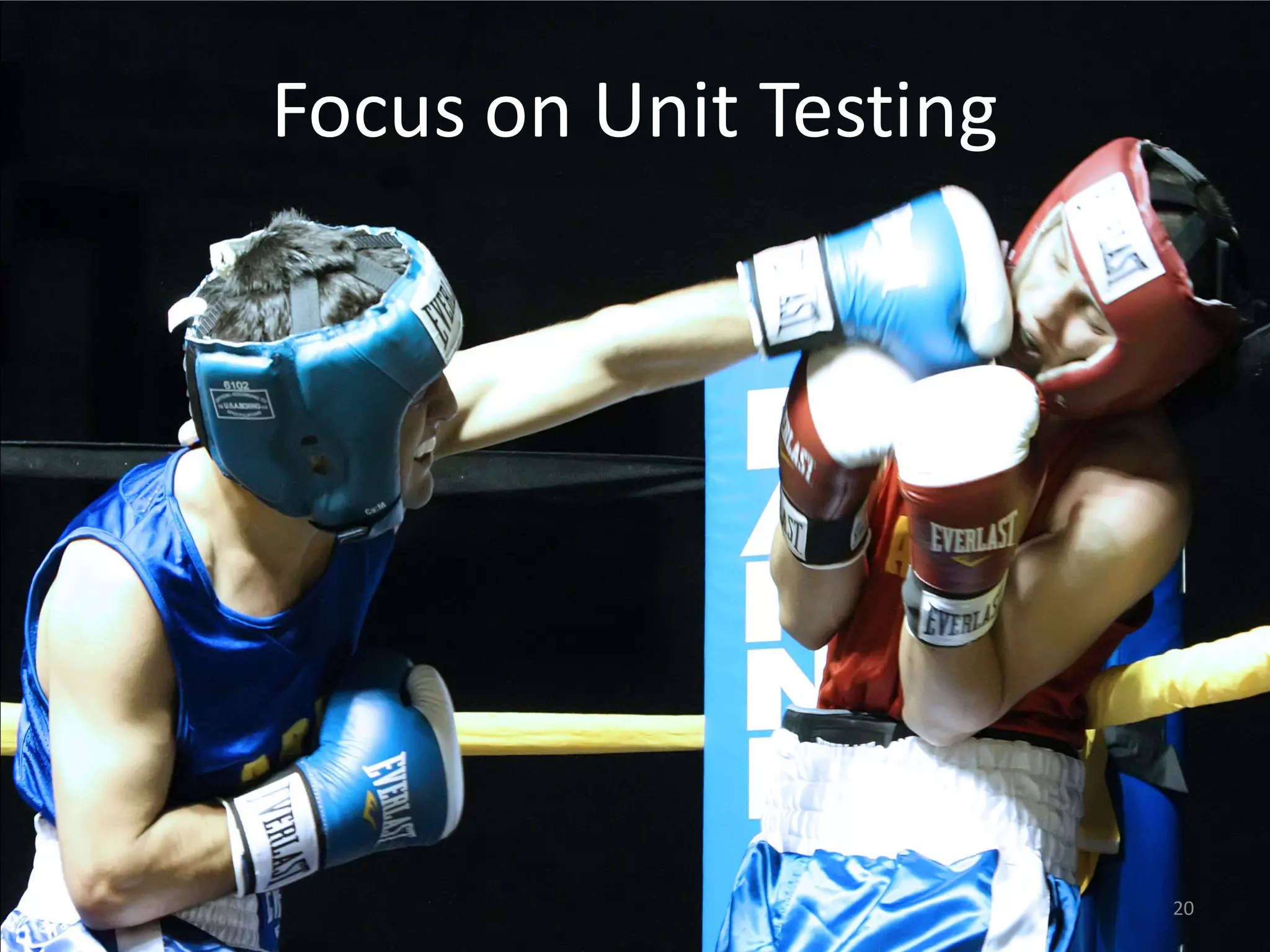
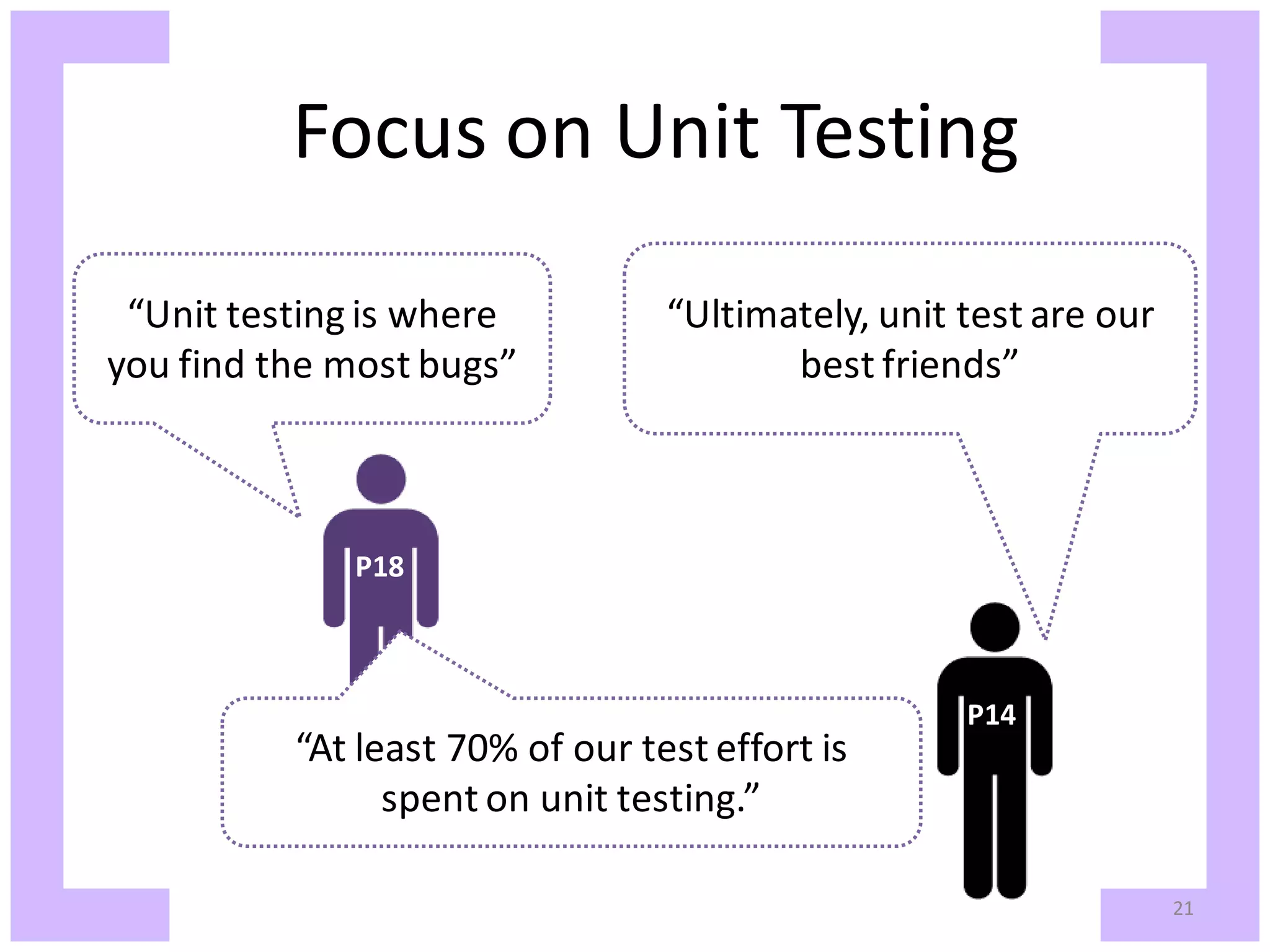

![Other forms of testing are less popular “We think that with a high “QF-tests [were] too rigid when test coverage through unit the system was evolving” tests, integration tests are not necessary.” P20 P14 23](https://image.slidesharecdn.com/icse2012-testconfessions-astudyoftestingpracticesforplug-insystemspdfversion-120608020833-phpapp01/75/ICSE-2012-Test-Confessions-A-study-of-testing-practices-for-plug-in-systems-23-2048.jpg)
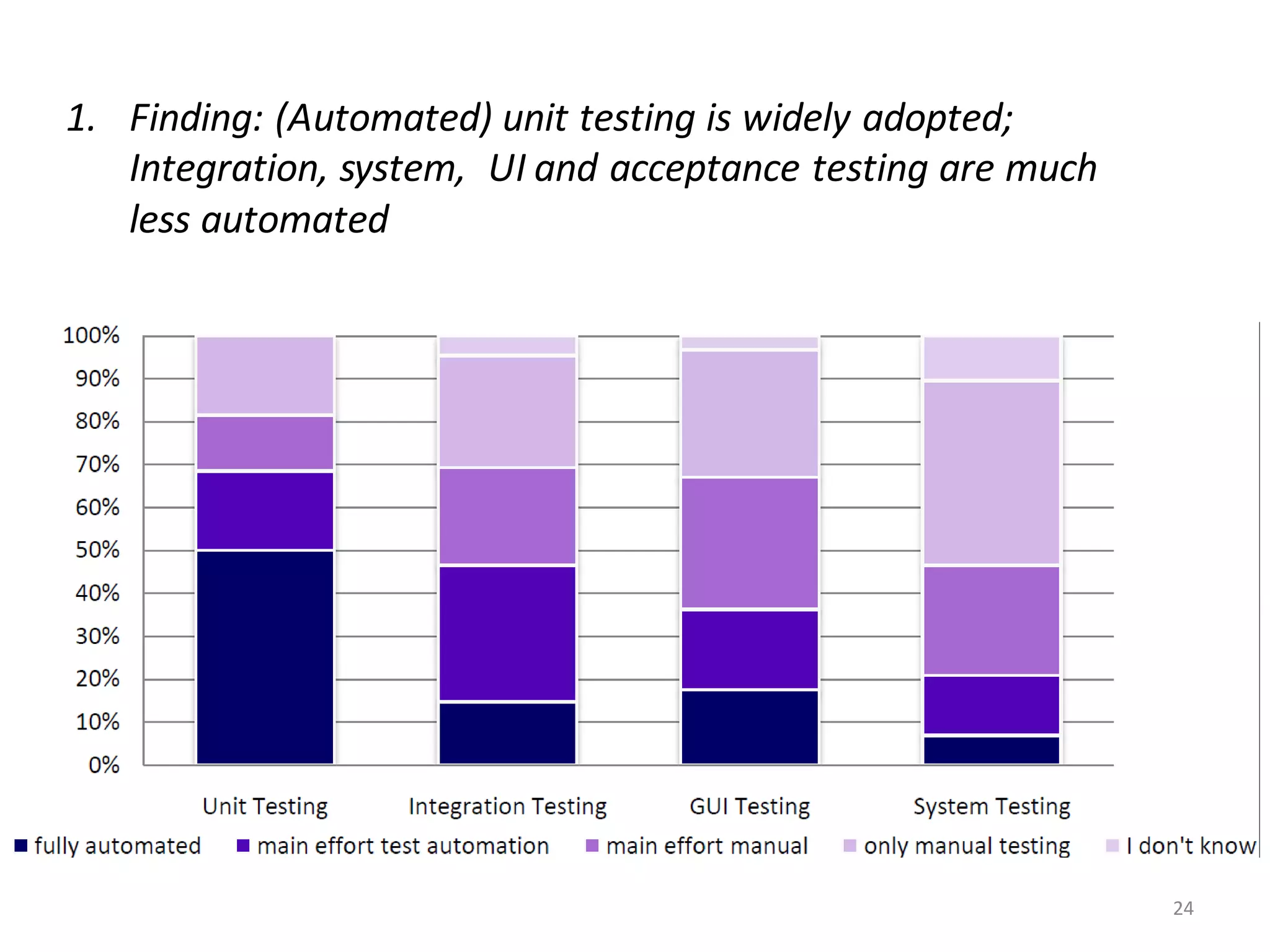
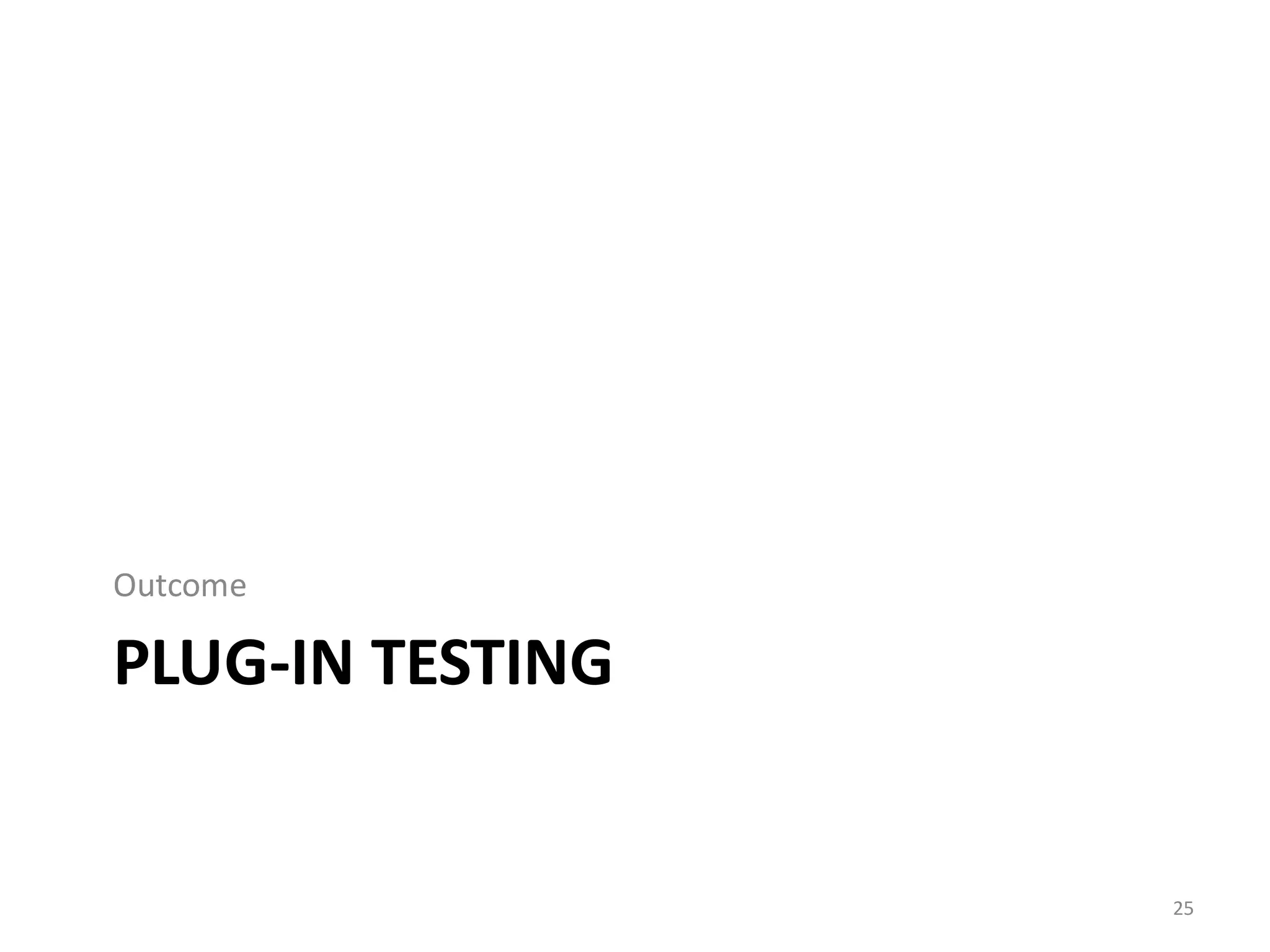
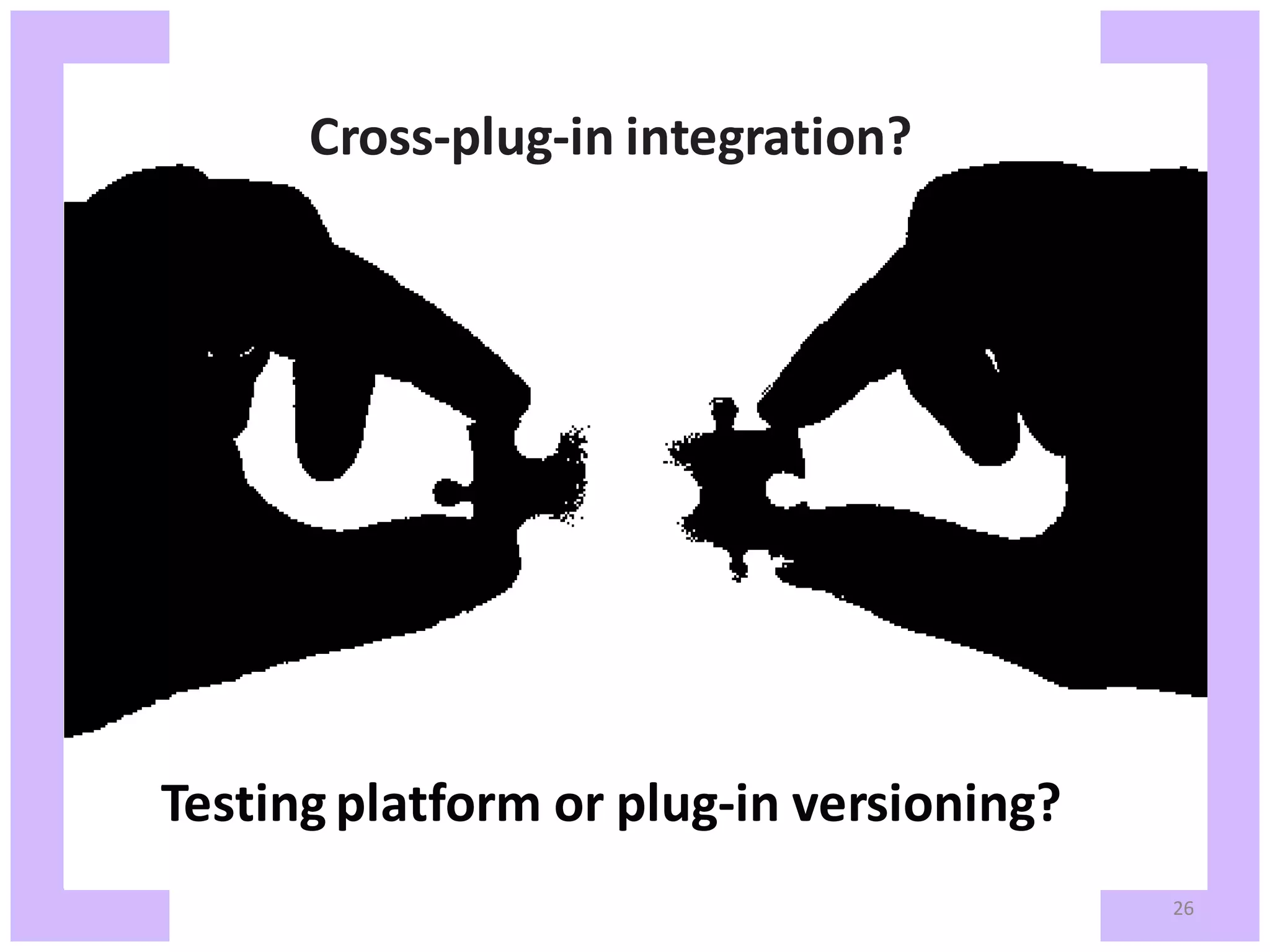
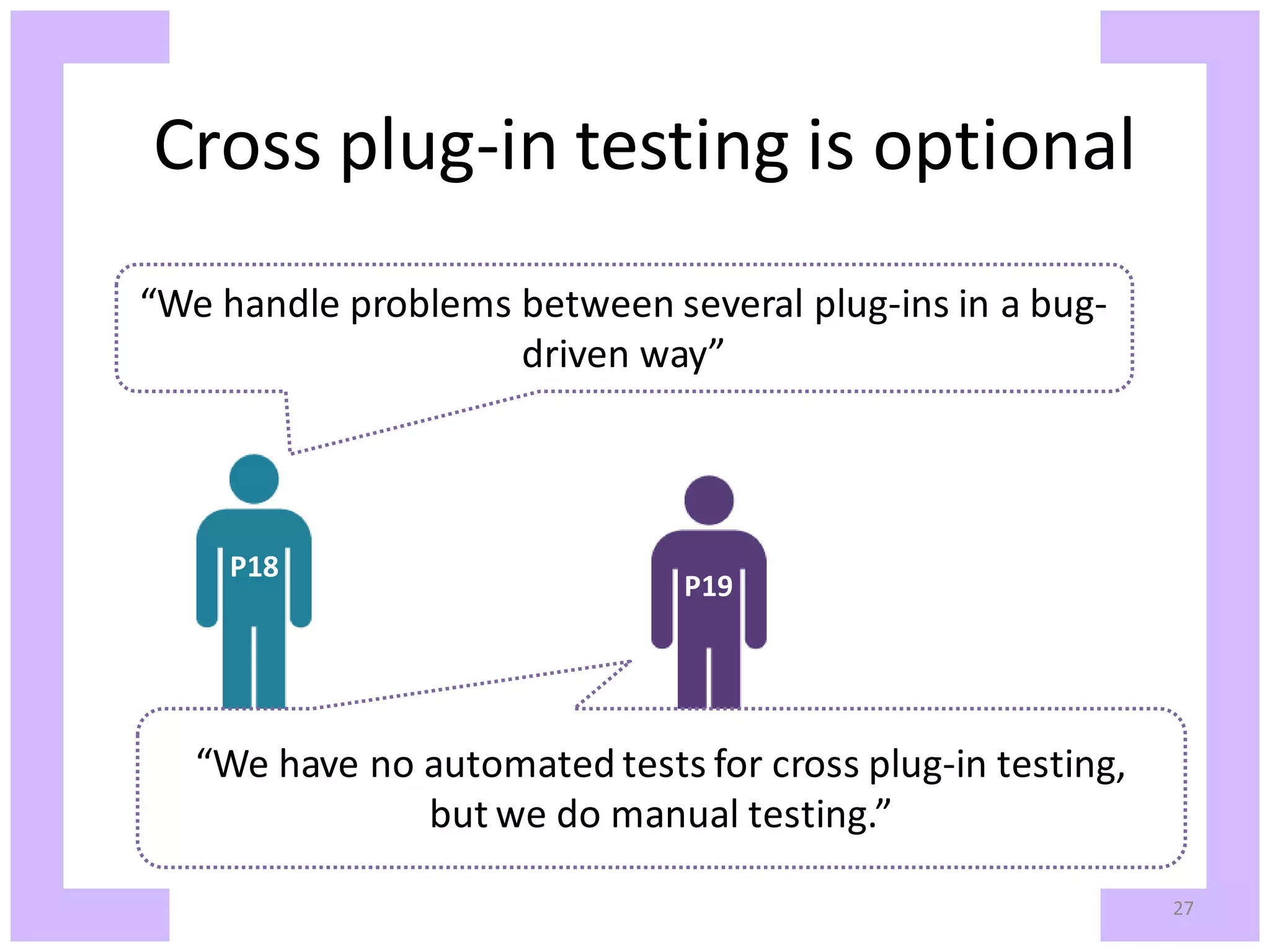
![Version testing is minimal “A lot of people put version ranges […], and they say they can run with 3.3 up to version 4.0 […].” P13 “But I’m willing to bet that 99% of the people do not test that their stuff works.” 28](https://image.slidesharecdn.com/icse2012-testconfessions-astudyoftestingpracticesforplug-insystemspdfversion-120608020833-phpapp01/75/ICSE-2012-Test-Confessions-A-study-of-testing-practices-for-plug-in-systems-28-2048.jpg)
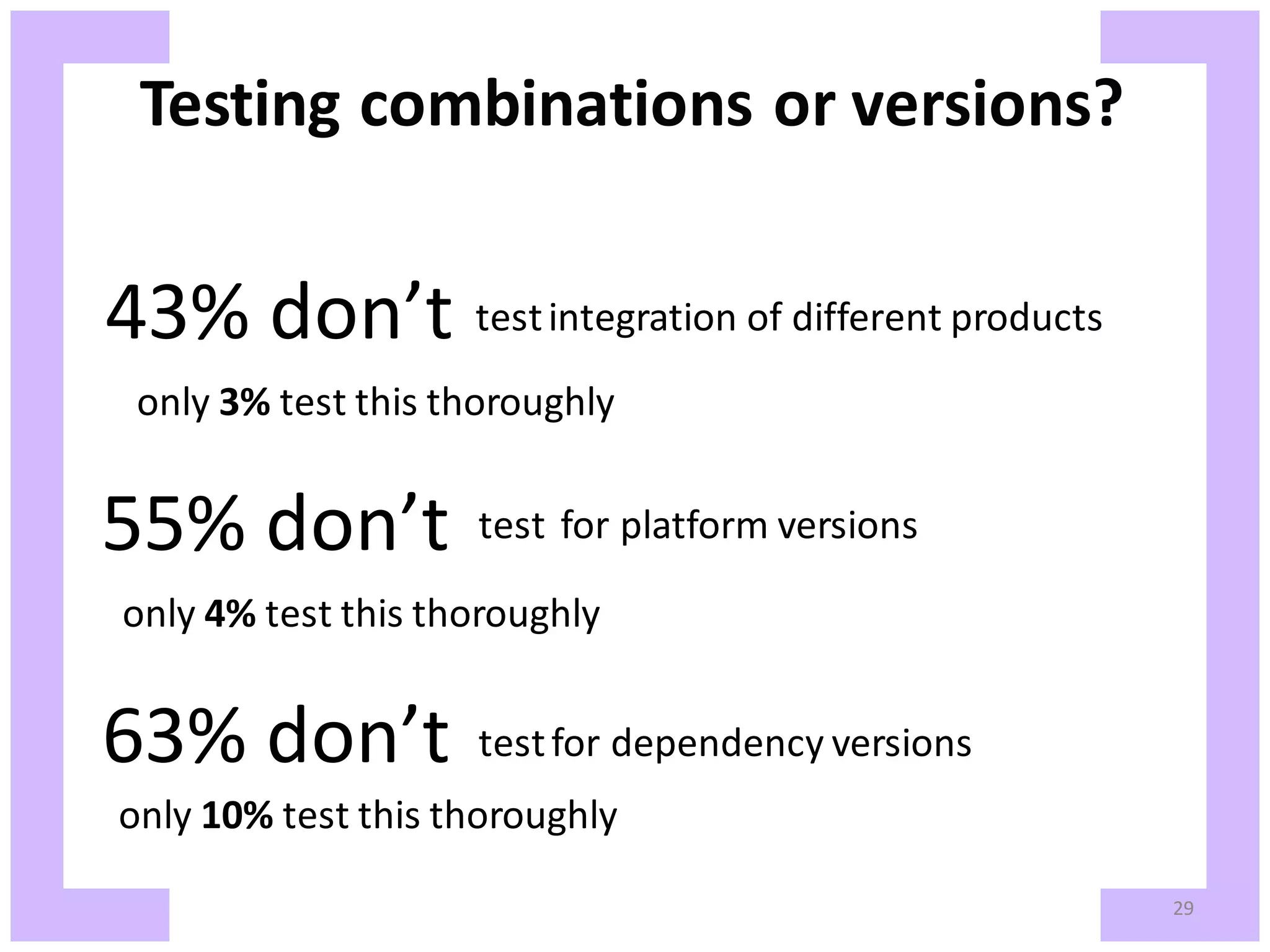
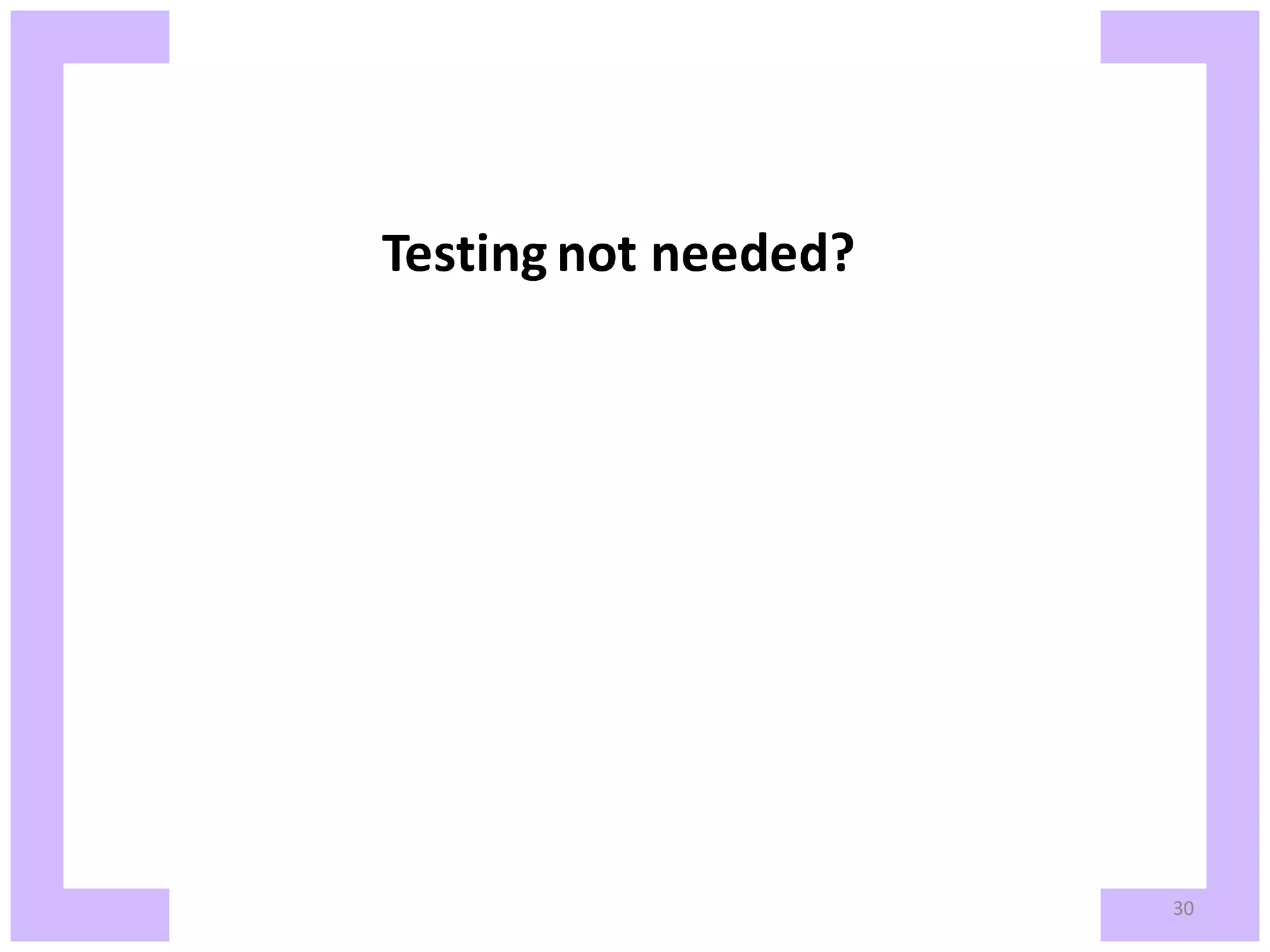
![Testing not needed? “Simply fetch the latest and you'll end up in a mess!” [Ian Bull on updating problems with plug-in systems] 31](https://image.slidesharecdn.com/icse2012-testconfessions-astudyoftestingpracticesforplug-insystemspdfversion-120608020833-phpapp01/75/ICSE-2012-Test-Confessions-A-study-of-testing-practices-for-plug-in-systems-31-2048.jpg)
![Versioning, cross-plug-in testing not needed? “Sometimes we update, but there is always the risk that it will break something and then you have to do extensive [manual] testing.” P9 P12 “I do not even have a chance to test [all possible combinations]. There are too many operating systems, there are too many Eclipse versions.” 32](https://image.slidesharecdn.com/icse2012-testconfessions-astudyoftestingpracticesforplug-insystemspdfversion-120608020833-phpapp01/75/ICSE-2012-Test-Confessions-A-study-of-testing-practices-for-plug-in-systems-32-2048.jpg)
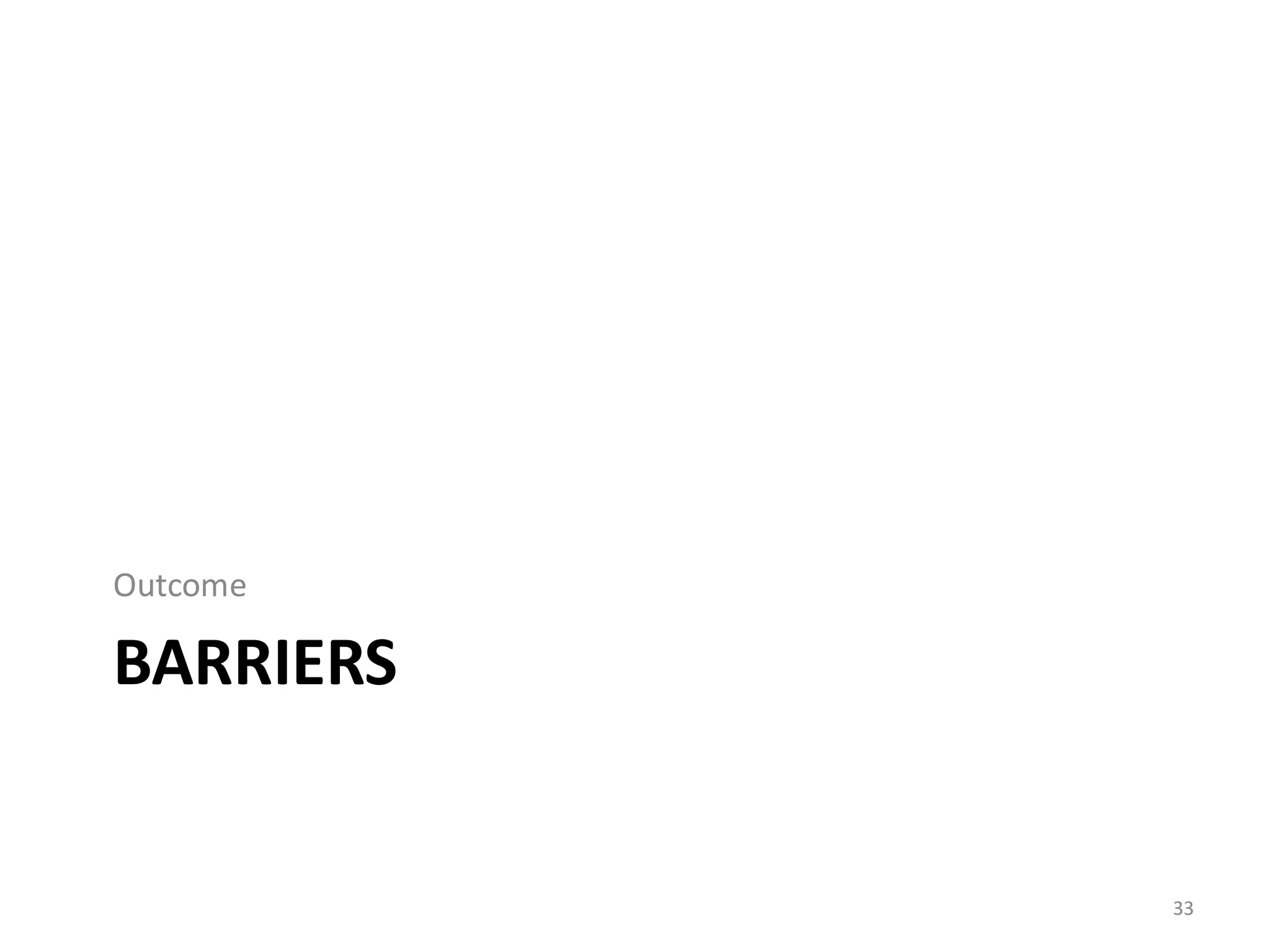
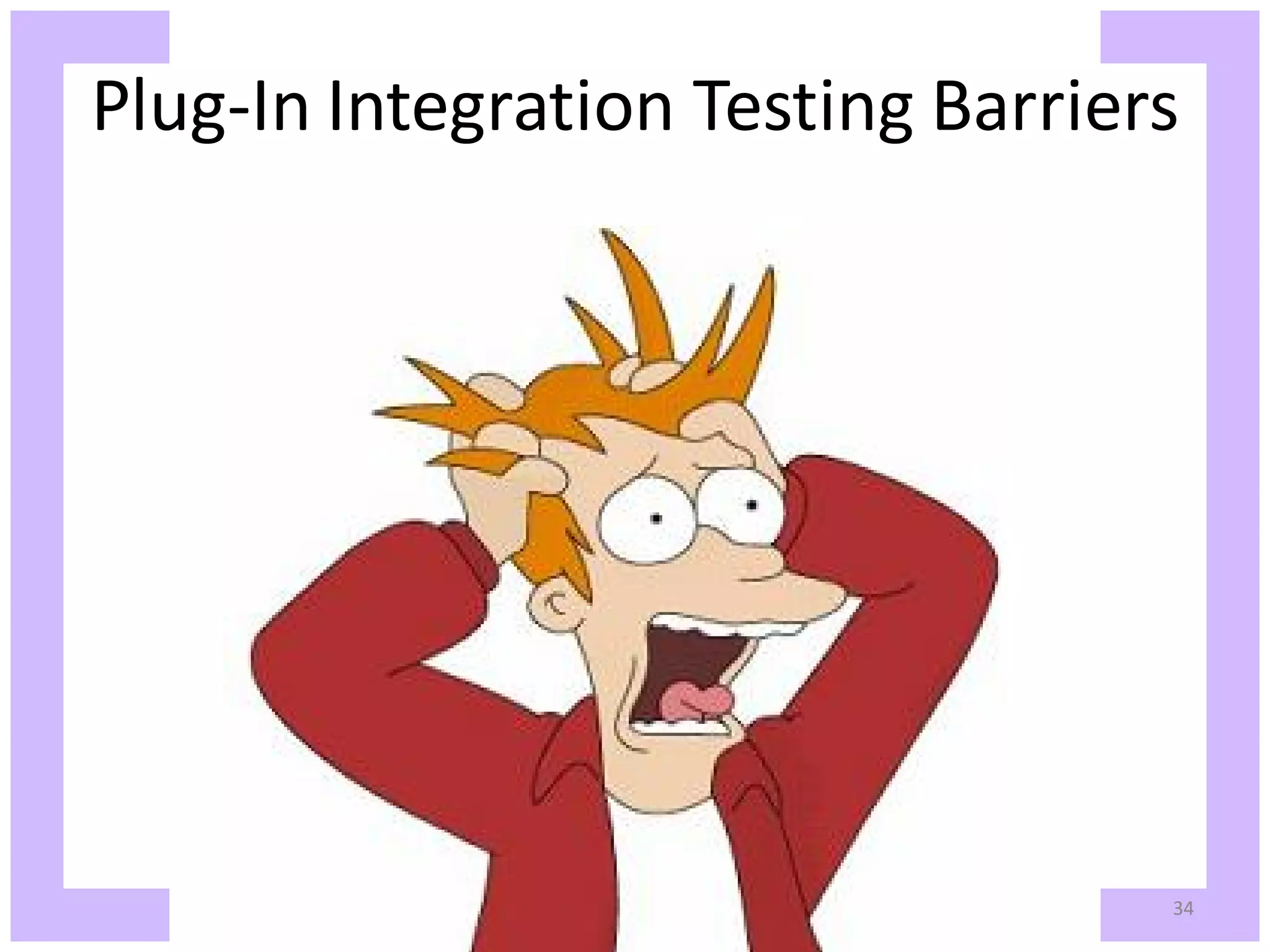
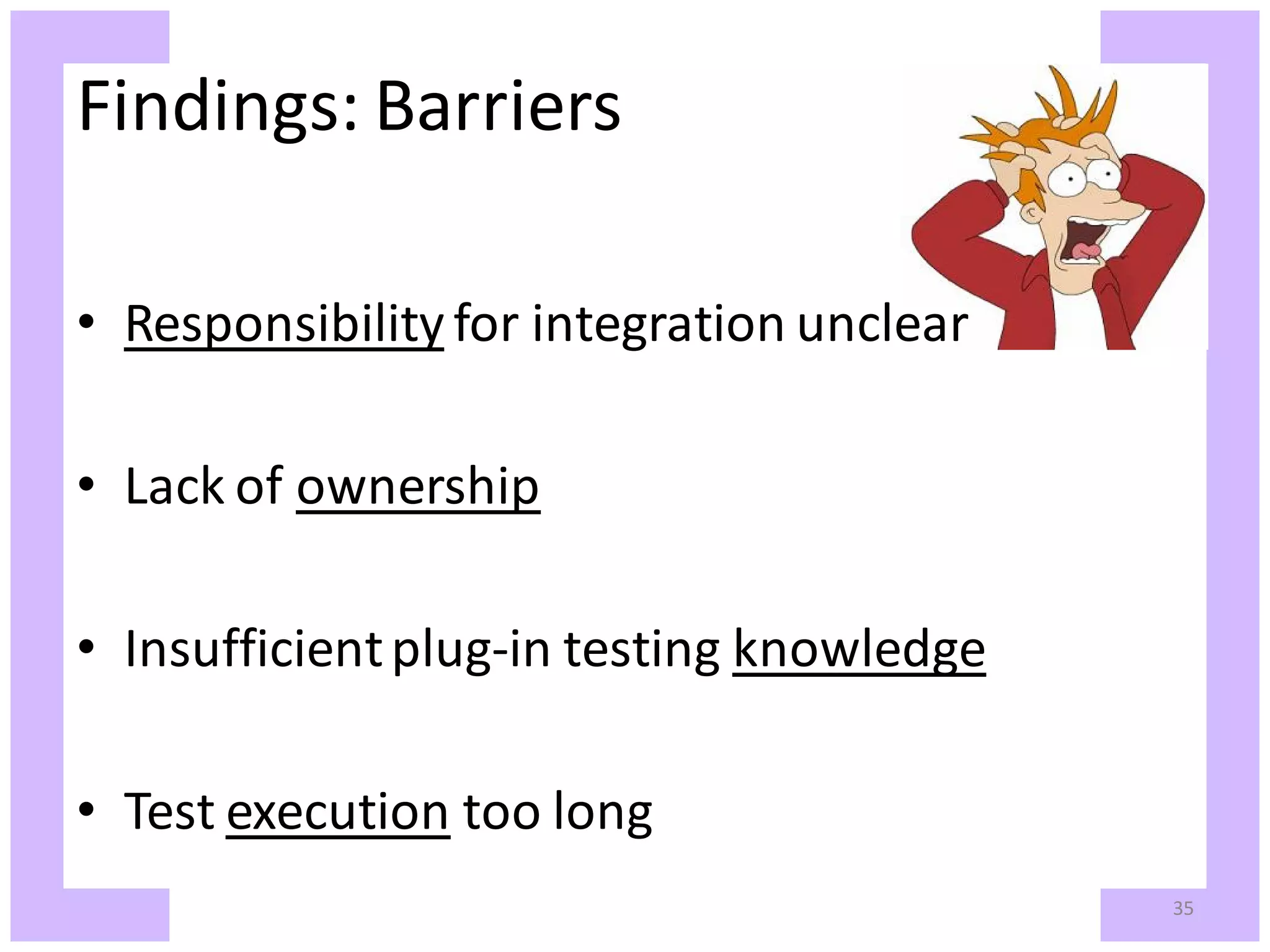
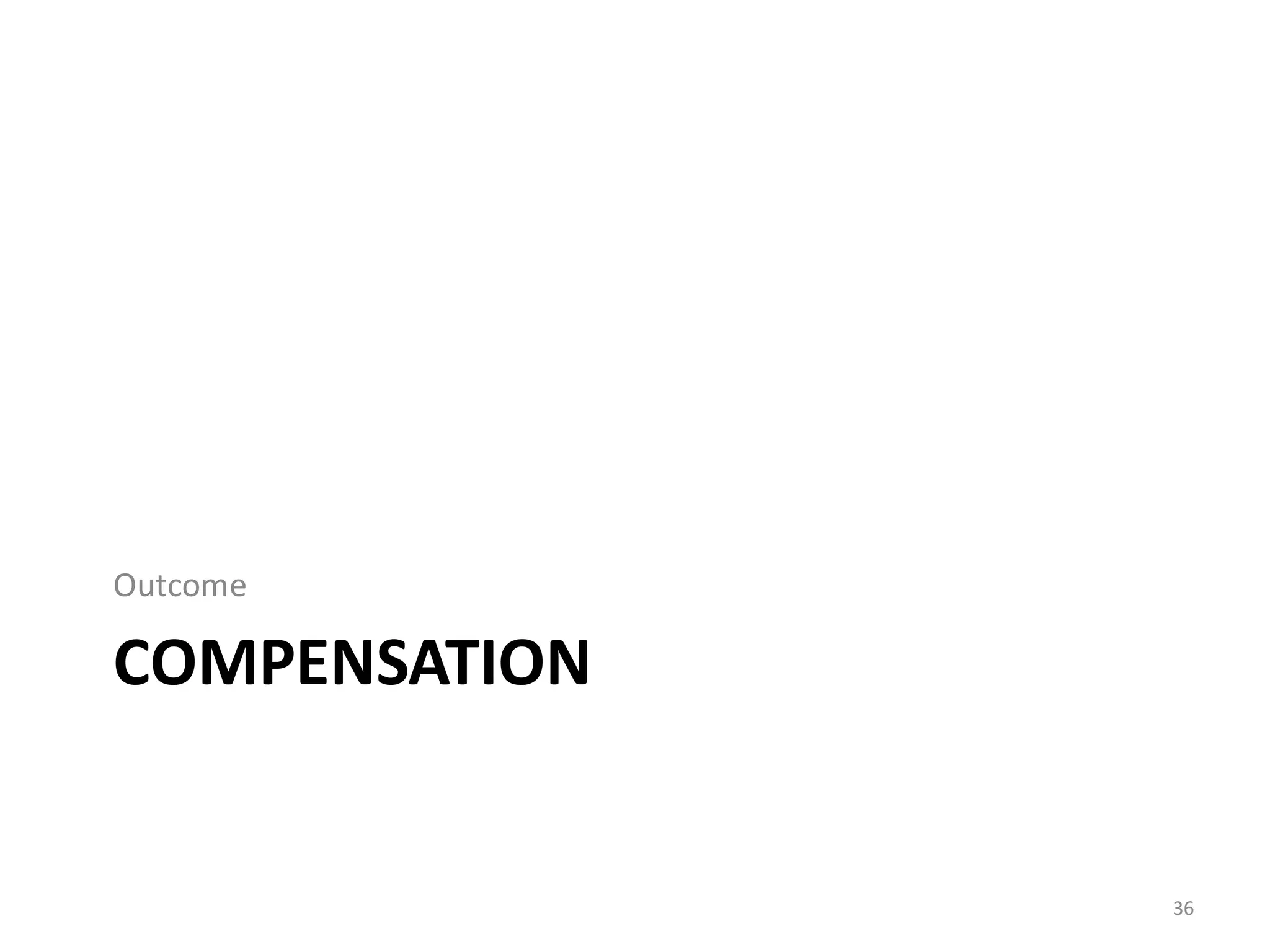

![Manual Testing “Tests that I do are very simple manual tests, the real tests are coming from the users, that are doing all kind of different things with [x].“—P9 38](https://image.slidesharecdn.com/icse2012-testconfessions-astudyoftestingpracticesforplug-insystemspdfversion-120608020833-phpapp01/75/ICSE-2012-Test-Confessions-A-study-of-testing-practices-for-plug-in-systems-38-2048.jpg)
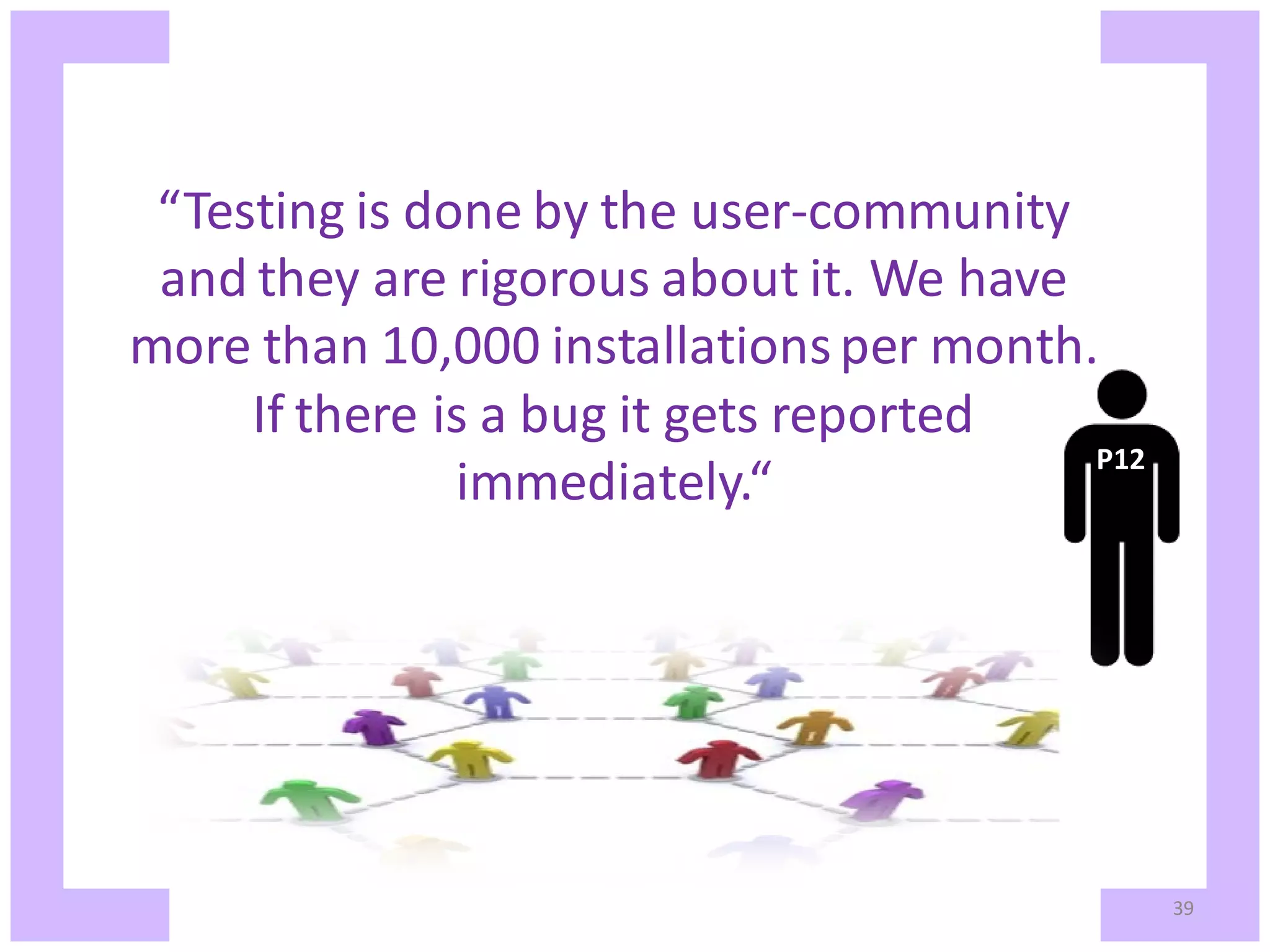
![Developer Involvement “We’re a framework. If the user downloads a new version and lets his application run with it, then this is already like a test.” P20 P11 “Perhaps it is not our own product, but our product relies on this other product. So it is normal to improve [it].” 40](https://image.slidesharecdn.com/icse2012-testconfessions-astudyoftestingpracticesforplug-insystemspdfversion-120608020833-phpapp01/75/ICSE-2012-Test-Confessions-A-study-of-testing-practices-for-plug-in-systems-40-2048.jpg)
